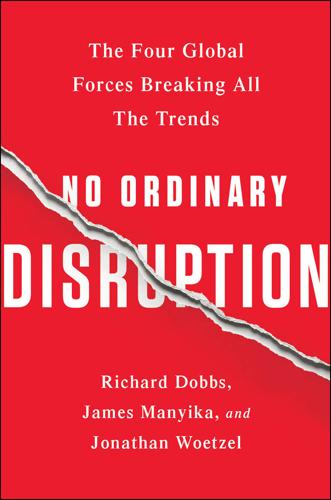
No Ordinary Disruption: The Four Global Forces Breaking All the Trends
by
Richard Dobbs
and
James Manyika
Published 12 May 2015
economic value of, 41, 44 globalization of, 7, 78–79, 82 monetization of, 49–50 new goods and services from, 47, 49 open, 41, 197, 198 optimization of, 46–47 privacy and protection policy, 189–190 product tracking, 39, 47, 85, 196 productivity gains from, 196–197 RFID tracking, 39, 48, 85, 122 sensors, 38, 47, 70 See also Digital capital Debt, government, 62, 139–140, 186 (fig.) Defense Advanced Research Projects Agency. See DARPA Demand, 114–116, 117 (table) Denmark, 191, 193–194, 195, 199 Detroit, Michigan, 135 Deutsche Bank, 5, 69, 95 Deutsche Telekom, 177 Diageo, 104, 160 Digital capital, 47–52, 74, 86 Digital media digitization of, 39, 46 (fig.) investing in start-up, 52 monetization of, 50 sector crossover in, 173–174 Digital platforms new capital sources via, 143–144 new competitor entry via, 165–166, 170–172 new talent via, 154, 158, 160–161, 162 trade globalization via, 74, 85–86 Digitization, 39, 41, 46 (fig.)
…
See Massachusetts Institute of Technology Mobile Internet for aging population, 67, 70 banking via, 176–177 current advances in, 38, 40 (fig.) digital capital cost decline in, 48 education by, 161 evolution of, 35 (fig.) globalization of, 78–79 health-care industry and, 177 illiteracy and, 98 infrastructure productivity via, 197 messaging apps, 2, 42, 48, 172, 176 new consuming class use of, 97–98, 170 population, 6, 38, 42, 43 (table), 79, 97–98, 170 Mobilink, 161 Modi, Narendra, 2 MoMaths, 161 Monetary policy loosening, 134–135, 138–140 tightening, 10, 185–186 Monetization of debt, 139–140 of digital capital, 48–50 Moore’s law, 33, 34, 155 Morocco, 80, 81 (table) Moyer, Jamie, 60 M-pesa, 176 Mulally, Alan, 203 Mumbai, India, 29, 131–132 Nanomaterials, 34–36 Natural disasters, 41, 88–89, 119 Natural gas extraction, 2, 36, 116, 125, 141, 196 The Nature of Technology (Arthur), 33 Ndemo, Bitange, 41 Nestlé, 105 Netflix, 173–174 Netherlands, 113 (table), 184 (table) New competitors, 165–179 adaptation to, 174–179 alliances with, 176–177 digital platforms and, 165–166, 170–172 historical entry waves of, 167, 168, 169 (fig.), 170 instant global entry of, 80, 84–85, 170–172 monitoring and understanding, 174–175 price transparency and, 173 sector crossover from, 173–174, 176–177 speed and scale of, 11, 100, 170, 171 (table) talent relocation and, 177–178 trend break from, 10–11, 80, 84–85, 166–168 New consuming class, 93–110 adaptation to, 9, 25–26, 98–109 Africa as, 101, 102 aging population as, 66–70, 101 Brazil as, 97, 101, 102 business organization strategy for, 107–109 China as, 93–94, 96–97, 97 (fig.), 98, 99 (fig.), 101 creation of, 94 demand increase by, 114–116 economic value of, 96, 97 (fig.)
…
As much as two-thirds of the value created by new Internet offerings is captured as consumer surplus—in the form of lower prices, improvements in productivity, or greater choices and convenience.40 The disruptive technologies discussed earlier will likely deliver the lion’s share of their value to consumers, even while providing companies with sufficient profit to encourage adoption and production. To illustrate the scale of the opportunity, consider this change: on July 31, 2013, the US Bureau of Economic Analysis released GDP figures that for the first time categorized research and development and software into a new category of “intellectual property products.” We estimate that digital capital is now the source of roughly one-third of total global GDP growth, with intangible assets (think of the value of Google’s search algorithm or Amazon’s recommendation engine) being the main driver.41 For businesses and governments alike, failing to navigate today’s technological tide will mean losing out on a huge economic opportunity as well as increasing vulnerability to potential disruptions.
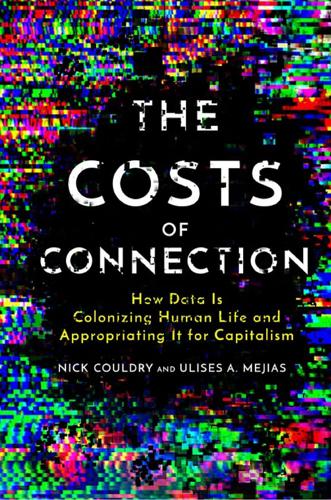
The Costs of Connection: How Data Is Colonizing Human Life and Appropriating It for Capitalism
by
Nick Couldry
and
Ulises A. Mejias
Published 19 Aug 2019
In China, it is continuous connection that underpins the government’s vision of “a networked, intelligent, service-oriented, coordinated ‘Internet Plus’ industrial ecology system,”32 a strategy that serves China’s desire to acquire both greater economic independence from the West and greater influence within global digital capitalism.33 In India, the Aadhaar unique ID system introduced in 2009 is creating huge new opportunities for data exploitation by both government and corporations, although it faces greater civil-society opposition than have parallel developments so far in China.34 Such costs to human autonomy are not accidental but intrinsic to emerging logics of connection that treat the continuous monitoring of human subjects as not exceptional but “natural.”
…
Data colonialism interposes infrastructures of data extraction directly into the texture of human life and so risks deforming human experience in a fundamental way, invading the space of the self on which the values of autonomy and freedom in all their forms depend.130 Our Argument within the Wider Debate about Data and Capitalism Why is it that so far we have talked simply of capitalism and not digital capitalism, informational capitalism, communicative capitalism, platform capitalism, or surveillance capitalism, to name some rival terms?131 The reason is straightforward. No convincing argument has yet been made that capitalism today is anything other than what it has always been: the systematic organization of life so as to maximize value, resulting in the concentration of power and wealth in very few hands.
…
Where they are not converted into actual money, they are converted into accounting money.” We are arguing, however, that the “means of labour” include both labor itself, with its means of reproduction, and the expanding conditions, or factors, of production. 71. Scott, Seeing Like a State. 72. Schiller, Digital Capitalism, 8, 13–24; and Panitch and Gindin, Global Capitalism, 148, 189, 191, 288. 73. Habermas, Communicative Action, vol. 2, 196, 305, an argument developed in relation to social media platforms by Valtysson, “Facebook as a Digital Public Sphere.” The closest Habermas comes to unpacking the metaphor of “colonization” is on page 355, where he says system imperatives “make their way into the lifeworld from the outside—like colonial masters coming into a tribal society—and force a process of assimilation upon it.”

Culture works: the political economy of culture
by
Richard Maxwell
Published 15 Jan 2001
.: SouthWest Organizing Project, 1995). 9. Thomas A. Downes and Shane M. Greenstein, “Do Commercial ISPs Provide Universal Access?” (December 2, 1998). Available: http://skew2.kellogg.nwu.edu/~greenste/ research/papers/tprcbook.pdf (July 22, 1999). 10. Schiller, Digital Capitalism, 30–31. 11. “Fair Taxation in Cyberspace,” New York Times, October 2, 1998, A28. 12. Schiller, Digital Capitalism, 143–202. 13. Donella H. Meadows, “The Secret Life of My Computer” (March 13, 1997). Available: http://iisd.ca/pcdf/meadows/computer.htm (July 11, 1999). 14. Peter Huber and Mark P. Mills, “Dig More Coal—the PCs Are Coming,” Forbes (May 31, 1999).
…
Available: http://www.usdoj.gov/atr/cases/exhibits/5.pdf (July 22, 1999). d Leslie Walker, “Rivals Cede Throne to AOL,” Washington Post, April 8, 1999, E1. e Carl Shapiro and Hal R. Varian, Information Rules: A Strategic Guide to the Network Economy (Cambridge: Harvard Business School Press, 1999), 150. f Schiller, Digital Capitalism, 32–34. g Monua Janah, “Web Portals Try Mass Marketing,” San Jose Mercury News, April 4, 1999. b As Figure 8.3. Internet-related market concentration, with dominant firms’ share of U.S. market. The wealth of information on the Web is increasingly also an immense collection of commodities, defined as “resource[s] produced for the market by wage labor.”38 Of course, users come to the Web, like any medium, with their own purposes in mind.
…
Capitalism and the Information Age: The Political Economy of the Global Communication Revolution. New York: Monthly Review Press, 1998. National Telecommunications and Information Administration. Falling through the Net: Defining the Digital Divide. Washington, D.C.: National Telecommunications and Information Administration, 1999. Schiller, Dan. Digital Capitalism: Networking the Global Market System. Cambridge: MIT Press, 1999. Webster, Frank, and Kevin Robins. Information Technology: A Luddite Analysis. Norwood, N.J.: Ablex, 1986. 220 The Web Notes 1. See Dan Schiller, “The Information Commodity: A Preliminary View,” in Cutting Edge: Technology, Information, Capitalism and Social Revolution, ed.
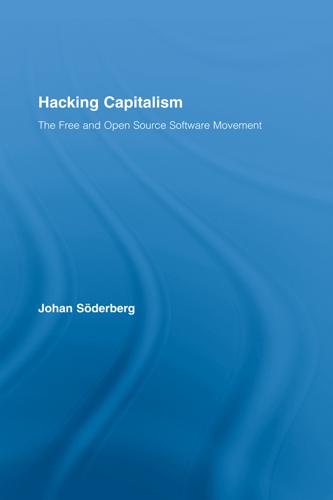
Hacking Capitalism
by
Söderberg, Johan; Söderberg, Johan;
If information is not given its due credit the implications from it cannot be drawn, but are left to apologetics to interpret for their own ends.8 The insight of Roland Barthes on how mythology works can be of assistance here. He says that a myth, to be plausible, always contains a core of truth. The lie just casts the significance of the facts in a different light. When futurists jump on the Information-age bandwagon they set out to glorify digital capitalism. Thus they dig out all those potentialities in capitalism that are humane, in other words, that are the contradictory tendencies pointing away from capitalism, towards communism. The irony comes full circle when progressive scholars, anxious to reveal the ideological smokescreen of the apologists, respond by fiercely denouncing the same potentialities.
…
For instance, as will be discussed towards the end of the chapter, the exceptionalism ascribed to information that underpins the claim about a digital gift economy and information commons, does not hold water when examined closer. It is crucial to problematise these concepts or else we might be tricked into singing in a different tune the official hymn of digital capitalism in a different tune. The key controversy in the debate over historical materialism is to what extent technological development modifies class relations as opposed to the impact of class struggle in shaping technology. It is a question that cuts right through the Marxist tradition and is also present in Karl Marx’s authorship.12 A conceptual weakness with the first approach, the technicist line of reasoning, is that technology is here understood as a self-explanatory, coherent and delimited category.
…
The opposite point of view contends that capitalism is closest to being superseded where it is most developed. It is the second tradition of thought that this book ascribes to. Nevertheless, George Caffentzis’ insistence on the importance of the proletariat in the Third World to the existence of cutting-edge, digital capitalism provides a healthy reality check. His reasoning is theoretically sound, though it does not provide an exhaustive explanation. As will be argued at length, capital has more options for sustaining profitability than increasing the rate of exploitation of workers in the periphery. Shifting production from waged employees to unpaid users is another possibility, a trend that is persistent in the industrialised economies.
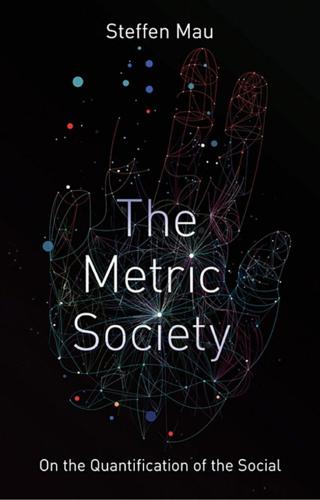
The Metric Society: On the Quantification of the Social
by
Steffen Mau
Published 12 Jun 2017
At Amazon, for example, the scanner system means the company ‘can monitor not only the exact location of all goods stored but also track its employees’ activities – where they are, how many articles they handle in a given period of time, and how their performance compares to that of their co-workers. In performance review meetings with employees, management can draw on the symbolic power of “objective” numbers’ (Nachtwey & Staab 2016: 467). In their analysis of ‘digital capitalism’, Nachtwey & Staab come to the conclusion that ‘Today, apps and algorithms have assumed the role of the assembly line’ (2016: 469). This trend is taken even further by applications in the field of so-called ‘people analytics’ (Waber 2013). Here, sociometric badges – also known as sociometers – are used to record every move and every conversation, and consist of tiny, sensor-equipped tracking tools worn on a lanyard.
…
Zur Kolonisierung des wissenschaftsinternen Wettbewerbs durch wissenschaftsexterne Evaluationsverfahren’ in Neue Steuerung von Hochschulen. Eine Zwischenbilanz, ed. Jörg Bogumil and Rolf G. Heinze, Berlin: Edition Sigma (pp. 68-93). Nachtwey, Oliver, and Philipp Staab (2016) ‘Market and labour control in digital capitalism’, Triple C 14/2 (pp. 457-74). Nassehi, Armin (2016) Die Wiedergewinnung des Politischen. Eine Auseinandersetzung mit Wahlverweigerung und kompromisslosem Protest, Berlin: Konrad Adenauer Stiftung. Neckel, Sighard (2001) ‘“Leistung” und “Erfolg”’ in Gesellschaftsbilder im Umbruch. Soziologische Perspektiven in Deutschland, ed.
…
Index ‘20-70-10’ rule 155 academics 139 and altmetrics 77–8 and h-index 75–6, 139, 144 self-documentation and self-presentation 76–7 status markers 74–8 accountability 3, 91, 115, 120, 134, 147, 159 accounting, rise of modern 17 activism alliance with statistics 127 Acxiom 164–5 ADM (automated decision-making) 63 Aenta 108 Airbnb 88 airlines and status miles 71–2 algorithms 7, 64, 127, 167 and nomination power 123–5, 126, 141–2 AlgorithmWatch 127 altmetrics 77–8 Amazon 96, 150, 156 American Consumers Union 167 apps 99, 105, 150 finance 66–7 fitness and health 68, 102–3, 104, 107 Moven 65–6 Asian crisis (1997) 57 audit society 24–5 automated decision-making (ADM) 63 averages, regime of 155–7 Barlösius, Eva 113 Baty, Phil 48 Bauman, Zygmunt 143 behavioural reactivity 131 benchmarks, regime of 155–7 Berlin, television tower 40 Better Life Index 20 Big Data 2, 79, 123 biopolitics 19 of the market 70 biopower 19 Boam, Eric 104 body images, regime of 156–7 Boltanzki, Luc 125–6 border controls 73–4 borders, smart 74 Bourdieu, Pierre 111, 114, 115, 162 BP 108 Bude, Heinz 37 bureaucracy 18 calculative practices 11, 124 expansion of 11, 115 and the market 15–17 Campbell, Donald T. 130–1 Campbell's Law 130–1 capitalism 15, 54, 55 digital 150 capitalists of the self 163 Carter, Allan 48 Chiapello, Ève 125–6 Chief Financial Officer (CFO) 17 China Sesame Credit 67 Social Credit System 1, 166 choice revolution 118–19 class and status 33 class conflict switch to individual competition 168–70 classification 60–80 see also scoring; screening collective body 104–6 collective of non-equals 166–8 commensurability 31–3, 44, 159 Committee of Inquiry on ‘Growth, Wealth and Quality of Life’ (Germany) 127 commodification 163, 164 Community (sitcom) 96 companies 16–17 comparison 7, 26–39, 159 and commensurability/incommensurability 31–3 and competition 28 dispositive(s) of 7, 28–31, 159, 169 new horizons of 33–5 part of everyday life 27 prerequisites for social 35–6 registers of 135–9 and self-esteem 30 shifts in class structure of 33 and status 29–30, 36–7 universalization of 27–8 COMPAS (Correctional Offender Management Profiling or Alternative Sanctions) 79 competition 6, 7, 115–19, 159–60 and comparison 28 increasing glorification of 159 and neoliberalism 23 and performance measurement 115–19 and quantification 116–17 and rankings 45 switch from class conflict to individual 168–70 competitive singularities 169 consumer generated content (CGC) 85–6 control datafication and increased 143, 147, 169 individualization of social 143 levers of social 144 relationship between quantification and 78 conventionalization 128 Cordray, Julia 97 Correctional Offender Management Profiling or Alternative Sanctions (COMPAS) 79 Corruption Perceptions Index 26 cosmetic indicators 135 Couchsurfing 88 credit risk colonialization 64 credit scoring 63–7 and social status 67 criminal recidivism, scoring and assessment of 62–3, 79 criteria reductionism 22 cumulative advantages, theory of 174 CureTogether 106 customer reviews 82–6, 87, 88 Dacadoo 68 Daily Telegraph 149 darknet 87 data behaviourism 171 data leaks 152 data literacy 21 data mining 4, 22, 163 data protection 72, 142 data repositories 62, 73–4 data storage 22, 73, 135 data voluntarism 4, 152, 153, 159 dating markets and health scores 70 de Botton, Alain 30 decoupling 133, 136, 174–5 democratization and digitalization 166 difference 2 visibilization and the creation of 40–3 ‘difference revolution’ digitalization giving rise to 166–7 digital capitalism 150 digital disenfranchisement of citizens 151 digital health plans 70 digital medical records 67 digitalization 2, 7, 21–2, 25, 63, 73, 80, 111, 123, 180 and democratization 166 giving rise to ‘difference revolution’ 166–7 as ‘great leveller’ 166 quantitative bias of 124 disembedding 13 distance, technology of 23–4 diversity versus monoculture 137–40 doctors, evaluation of by patients 92–3 Doganova, Liliana 5–6 double-entry bookkeeping 15, 163 e-recruitment 61 eBay 87 economic valuation theory 5 economization 22–4, 38, 115, 117 and rise of rankings 46 education and evaluation 89–91 evaluation of tutors by students 89–90 law schools 44, 138–9 output indicators and resource allocation in higher 132 and Pisa system 122, 145–6 Eggers, Dave The Circle 41, 82–3 employer review sites 83 entrepreneurial self 3, 154 epistemic communities 121 equivalence 16, 27 Espeland, Wendy 44, 139 esteem 29, 30 and estimation 15, 38 see also self-esteem Etzioni, Amitai The Active Society 20 European Union 122 evaluation 81–98 connection with recognition 38 cult and spread of 7, 97–8, 134 education sector 89–91 loss of time and energy 136 and medical sector 91–3 peer-to-peer ratings 87–8 portals as selectors 84–6 pressure exerted by reviews 147–8 and professions 89–93 qualitative 117 satisfaction surveys 82–4 and social media 93–8 of tutors by students 89–90 evidence-basing 3 exercise and self-tracking 101–4 expert systems 7 transnational 121–2 experts, nomination power of 119–23, 126 Facebook 94 FanSlave 95 Federal Foreign Office (Germany) 53 feedback power of 147–8 and social media 93–4 Fertik, Michael 66 Fitch 56 fitness apps 68, 102–3, 104, 107 Floridi, Luciano 105 Foucault, Michel 19 Fourcade, Marion 163–4 Franck, Georg 29 fraud 137 Frey, Bruno ‘Publishing as Prostitution’ 146 ‘gaming the system’ 132 GDP (gross domestic product) 14 dispute over alternatives to 127–8 General Electric 155 Germany Excellence Initiative 51 higher education institutes 52–3 Gerstner, Louis V. 130 Glassdoor.com 83 global governance 122 globalization 34, 73 governance 12 self- 19, 37, 105 state as data manager 17–20 ‘government at a distance’ 145 governmentality 112 GPS systems 150 Granovetter, Mark ‘The strength of weak ties’ 147 gross domestic product see GDP h-index 75–6, 139, 144 halo effect 90 Han, Byung-Chul 154 Hanoi, rat infestation of 130 happiness and comparison 30 Hawthorne effect 107 health and self-tracking 101–4 health apps 68, 102–3, 104, 107 health scores 67–71 health status, quantified 67–71 Healy, Kieran 163–4 Heintz, Bettina 14, 33, 34 hierarchization/hierarchies 1, 5, 6, 11, 33, 39, 40–59, 174 and rankings 41–2, 43, 44, 48 higher education, output indicators and resource allocation 132 Hirsch, Jorge E. 75 home nursing care 135–6 hospitals and performance indicators 131 Human Development Index 14 hyperindividualization 167–8 identity theory 29 incommensurability 31–3 indicators 2, 3, 5, 20, 23–4, 34, 114, 159 and competition 116–17 and concept of reactive measurements 129–33 cosmetic 135 economic 7 governance by 24 politics of 14 status 35, 75 see also performance indicators individualization of social control 143 industrial revolution 19 inequality 6, 8, 158–76 collectives of non-equals 166–8 establishment of worth 160–2 inescapability and status fluidity 170–4 reputation management 162–6 switch from class conflict to individual competition 168–70 inescapability of status 170–4 information economy 2 information transmission interfaces, between social subsystems 165–6 institutional theory 113 insurance companies 72, 108, 151, 152, 167 International Labour Organization 122 investive status work 36–7 Italian Job, The (film) 138 justice 126 Kaube, Jürgen 2 Kula, Witold 16 Latour, Bruno 34 law schools 44, 138–9 league tables 35, 43, 46, 47, 51, 52, 53, 91, 138, 139, 146, 162, 175 legitimate test, concept of 125–6 Lenin, Vladimir 116 lifelogging 99, 109, 153 Luhmann, Niklas 166 Lyon, David 142 McClusky, Mark 101 McCullough, Nicole 97 Mann, Steve 153 market(s) calculative practices of 15–17 and neoliberalism 23 and rating agencies 55–6 Marron, Donncha 65 Matthew effect 174–5 measurement, meaning 10 media reporting 33 medical sector and evaluation 91–3 hospitals and performance indicators 131–2 MedXSafe 70 meritocracy 23, 161 Merton, Robert K. 161, 174 ‘metric revolution’ 16 Miller, Peter 112 mobility 71–4 border controls 73 digital monitoring of 72 and scoring 71–4 smart cars 72 and status miles 71–2 money as means of exchange 16 monoculture versus diversity 137–40 mood, self-tracking of 101–4 Moody's 56 motivation 106–10 and rankings 45 Moven 65–6 Münch, Richard 145 Nachtwey, Oliver 150 naturalization 113 neoliberalism 3, 12, 23, 25 basic tenets of 23 New Public Management 3, 117, 136, 155 NHS (National Health Service) 118 nomination power 111–28 and algorithms 123–5, 126, 141–2 critique of 125–8 and economization 115 of experts 119–23, 126 performance measurement and the framing of competition 115–19 and the state 112–15 non-equals, collectives of 166–8 normative pressure 144–6 North Korea 144 ‘number rush’ 2 numbers 13–14, 15 numerical medium 8, 14, 16, 18, 28, 33, 113, 160, 166 objectivization 35, 154, 160 OECD 122 Offe, Claus 175 Old Testament 17 omnimetrics 9 O’Neil, Cathy Weapons of Math Destruction 79 optimization 12, 25 Oral Roberts University (Oklahoma) 108 Peeple app 96–7 peer-to-peer ratings 87–8 Pentland, Alex 151 people analytics 150–1 performance enhancement 12 performance indicators 12, 38, 53, 74, 118, 119, 120, 129, 155 and hospitals 131–2 performance measurement 23, 38, 115–19 performance-oriented funding allocation 22 performance paradox 132 performance targets 4 Personicx 165 Pisa system 122, 145–6 politicians 14, 120 politics 114 portals 84–6, 88, 90–1 power of nomination see nomination power prestige 8, 29, 67, 144 principal–agent problem 147–8 private consultancy services 117 professional control, loss of 133–4 professionalization 19, 133 professions and evaluation 89–93 publicity 33 QS ranking 52 qualitative evaluation 117 quantification advantages of 8 engines of 21–5 history 11 impact and consequences of 5, 6 meaning 10, 12–15 risks and side-effects 7, 129–40 role of 35 quantified self 99–110 Quantified Self (network) 99–100 quantitative evaluation see evaluation quantitative mentality 11–12 quasi-markets 116, 118–19 race and assessment of criminal recidivism risk 79 rankings 47–53, 58–9, 60, 144 and competition 45 and compliance 44 differences between ratings and 42–3 disadvantage of 43–4 economization and rise of 46 and evaluation portals 84–6 and hierarchies 41–2, 43, 44, 48 and image fetishization 47 and motivation 45 as objectivity generators 41 performance-enhancing role 46 popularity of 41 as positional goods 45 purpose of 45 and reputation 48, 49, 50, 52 as social ushers 42 and status anxiety 46–7 university 6, 7, 43, 47–53, 144, 175 Welch's forced 155–6 rating agencies, market power of 53–9 ratings 41–3, 53–9, 60 definition 54 differences between rankings and 42–3 and evaluation portals 84–6 as objectivity generators 41 peer-to-peer 87–8 as social ushers 42 rationalization 5, 11, 12, 14, 15, 16, 19, 105, 110, 154, 163 Raz, Joseph 31–2 reactive measurements 129–33 recommendation marketing 85 recruitment, e- 61 reference group theory 29 reputation 29, 39, 66, 74, 121 academic 75–6 cultivating good 47 and rankings 48, 49, 50, 52 rating of 87–8 signal value of 87 social media and like-based 93–8 reputation management 4, 50, 162–6 reputation scoring 87–8 research community 146 and evaluation system 146 and review system 146–7 ResearchGate 77 reviews 136 customer 82–6, 87, 88 doctor 92 high demand for 136 lecturers/tutors 90 performance 25, 149 pressure exerted by popular 147 Riesman, David 37 risks of quantification 129–40 loss of professional control 133–5 loss of time and energy 135–7 monoculture versus diversity 137–40 reactive measurements 129–33 Rosa, Hartmut 94, 173 Rose, Nikolas 112 Rousseau, Jean-Jacques 28–9 running apps 107 Runtastic app 107 satisfaction surveys 82–4 Sauder, Michael 44, 139 Schimank, Uwe 134 Schirrmacher, Frank 152 Schmidt, Eric 147 schools and choice 118–19 evaluation of 90–1 league tables 46 and Pisa system 122, 145–6 scoring 7, 60, 61, 78–80 academic status markers 74–8 and assessment of criminal recidivism 62–3 credit 63–7 health 67–71 mobility value 71–4 pitfalls 79 screening 7, 60–1, 78–9 border controls 73–4 e-recruitment 61–2 function 60–1 smart cars 72 self-direction 105, 121, 143 self-documentation 153 and academic world 76–7 self-enhancement 3, 137 self-esteem 29, 37, 170 and comparison 29, 30 rankings and university staff 50–1 self-governance 19, 37, 105 self-image 37, 47, 50, 89 self-management 3, 20, 25 self-observation 25, 42 quantified 99–110 self-optimization 3, 19, 104, 109, 163 self-quantification/quantifiers 4, 13, 25, 101, 154–5, 156 self-reification 105 self-responsibility 25, 110 self-tracking 4, 7, 99, 100, 106, 109–10 collective body 104–6 as duty or social expectation 108 emotions provoked 109 health, exercise and mood 101–4 and motivation 106–10 problems with wearable technologies 103–4 running and fitness apps 68, 102–3, 104, 107 and sousveillance 153 as third-party tracking 154 self-worth 29, 36, 38, 47, 51, 170 and market value 67 Sesame Credit (China) 67 Shanghai ranking 47 ‘shared body’ 105 shared data 142, 152–3 Simmel, Georg 28 ‘small improvement argument’ 32 smart borders 74 smart cars 72 smart cities 21 smart homes 21 ‘social accounts’ 20 Social Credit System (China) 1, 166 social engineering 20 social management 20 social media 93–8, 153, 166 drivers of activity 93 and feedback 93–4 forms of connection 93 likes 93–5 and online disinhibition 153 and reputation building 95 resonance generated by 94 and running/fitness apps 107 social research 19–20 social security systems 19 social status see status social worth see worth socio-psychological rank theory 46 sociometrics/sociometers 2, 5, 36, 74, 141, 150–1 Sombart, Werner Modern Capitalism 15–16 sousveillance 153 sport 33 rise of world 35 Staab, Philipp 149–50 Stalder, Felix 124 Standard & Poor's 54, 56 statactivism 127 state as data manager 17–20 nomination power of the 112–15 statistics 14 origins of word 17 status and class 33 and comparison 29–30, 36–7 and credit scoring 67 inescapability from 170–4 and life satisfaction 30 seeking of 36 status anxiety 30 and rankings 46–7 status competition 26–39 status data 2, 80, 159, 161–2, 169, 174 functioning as symbolic data 8, 162 status fluidity 170–4 status insecurity 4 status miles 71–2 status sets 161–2 status symbols 158 status work 4, 36–7, 174 Stiglitz-Sen-Fitoussi Commission (France) 127 Streeck, Wolfgang 171–2 subprime crisis (2007) 57, 64 surveillance 8, 142, 152 interdependence of self- and external 153–5 and neoliberalism 23 workplace and technological 149–51 surveys, satisfaction 82–4 symbolic capital 174 status data as 8, 162 target setting 22 tariff models 152–3 technological surveillance, in the workplace 149–51 technologies of the self 25 tertium comparationis 32 Thomas theorem 59 Thompson, David C. 66 Times Higher Education ranking 47, 48, 53 tourism portals 85 tracking as double-edged sword 142 see also self-tracking trade relations 16 transnational expert systems 121–2 transparency 3, 91, 141–3, 144, 147 Transparency International 26 ‘transparent body’ 105 TripAdvisor 85 Trustpilot 86 Turkey 54 tutors evaluation of by students 89–90 Uber 156 űbercapital 163–4 UN Sustainable Development Goals 20 United Nations 122 university lecturers evaluation of 89–90 object of online reviews 90 university rankings 6, 7, 43, 47–53, 144, 175 valorization 5, 58, 124, 161 valuation 5–6 value registration 161 Vietnam War 131 visibilization, and the creation of difference 40–3 Webb, Jarrett 104 Weber, Max 15, 16, 154 Weiß, Manfred 119 Welch, Jack 155 ‘winner-take-all society’ 136 Wolf, Gary 99–100 Woolgar, Steve 34 workplace technological surveillance in the 149–51 World Bank 122 worth 5–6, 7, 11, 78–80, 170 assessments of 27 establishment of 160–2 orders of 11, 15, 29 self- 29, 36, 38, 47, 51, 67, 170 Young, Michael 161 The Rise of Meritocracy 23, 161 Zillien, Nicole 105 Zuckerberg, Mark 158 POLITY END USER LICENSE AGREEMENT Go to www.politybooks.com/eula to access Polity's ebook EULA.

The Age of Surveillance Capitalism
by
Shoshana Zuboff
Published 15 Jan 2019
Can the instability of the second modernity give way to a new synthesis: a third modernity that transcends the collision, offering a genuine path to a flourishing and effective life for the many, not just the few? What role will information capitalism play? V. A Third Modernity Apple once launched itself into that “abysmal gap,” and for a time it seemed that the company’s fusion of capitalism and the digital might set a new course toward a third modernity. The promise of an advocacy-oriented digital capitalism during the first decade of our century galvanized second-modernity populations around the world. New companies such as Google and Facebook appeared to bring the promise of the inversion to life in new domains of critical importance, rescuing information and people from the old institutional confines, enabling us to find what and whom we wanted, when and how we wanted to search or connect.
…
Long before the death of its legendary founder, Steve Jobs, its frequent abuses of user expectations raised questions about how well the corporation understood the deep structure and historic potential of its own creations. The dramatic success of Apple’s iPod and iTunes instilled internet users with a sense of optimism toward the new digital capitalism, but Apple never did seize the reins on developing the consistent, comprehensive social and institutional processes that would have elevated the iPod’s promise to an explicit market form, as Henry Ford and Alfred Sloan had once done. These developments reflect the simple truth that genuine economic reformation takes time and that the internet world, its investors and shareholders, were and are in a hurry.
…
History offers no control groups, and we cannot say whether with different leadership, more time, or other altered circumstances Apple might have perceived, elaborated, and institutionalized the jewel in its crown as Henry Ford and Alfred Sloan had done in another era. Nor is that opportunity forever lost—far from it. We may yet see the founding of a new synthesis for a third modernity in which a genuine inversion and its social compact are institutionalized as principles of a new rational digital capitalism aligned with a society of individuals and supported by democratic institutions. The fact that Schumpeter reckoned the time line for such institutionalization in decades or even centuries lingers as a critical commentary on our larger story. These developments are all the more dangerous because they cannot be reduced to known harms—monopoly, privacy—and therefore do not easily yield to known forms of combat.

Survival of the Richest: Escape Fantasies of the Tech Billionaires
by
Douglas Rushkoff
Published 7 Sep 2022
Digital platforms have turned an already exploitative and extractive marketplace (think Walmart) into an even more dehumanizing successor (think Amazon). Most of us became aware of these downsides in the form of automated jobs, the gig economy, and the demise of local retail along with local journalism. But the more devastating impacts of pedal-to-the-metal digital capitalism fall on the environment, the global poor, and the civilizational future their oppression portends. The manufacture of our computers and smartphones still depends on networks of slave labor. These practices are deeply entrenched. A company called Fairphone, founded to make and market ethical phones, learned it was impossible.
…
Yet this Silicon Valley escapism—let’s call it The Mindset—encourages its adherents to believe that the winners can somehow leave the rest of us behind. Maybe that’s been their objective all along. Perhaps this fatalist drive to rise above and separate from humanity is no more the result of runaway digital capitalism than its cause—a way of treating one another and the world that can be traced back to the sociopathic tendencies of empirical science, individualism, sexual domination, and perhaps even “progress” itself. Yet while tyrants since the time of Pharaoh and Alexander the Great may have sought to sit atop great civilizations and rule them from above, never before have our society’s most powerful players assumed that the primary impact of their own conquests would be to render the world itself unlivable for everyone else.
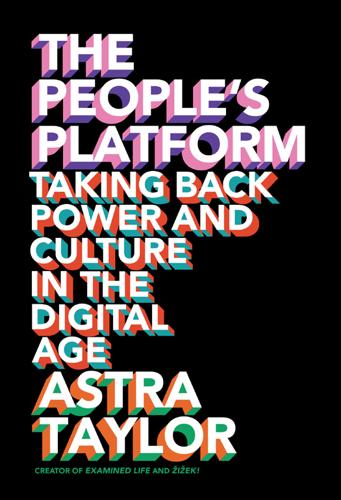
The People's Platform: Taking Back Power and Culture in the Digital Age
by
Astra Taylor
Published 4 Mar 2014
But when the commons are sold or traded on Wall Street, the vast disparities between us, the peasants, and them, the lords, become more obvious and more objectionable.”13 Computer scientist turned techno-skeptic Jaron Lanier has staked out the most extreme position in relation to those he calls the “lords of the computing clouds,” arguing that the only way to counteract this feudal structure is to institute a system of nanopayments, a market mechanism by which individuals are rewarded for every bit of private information gleaned by the network (an interesting thought experiment, Lanier’s proposed solution may well lead to worse outcomes than the situation we have now, due to the twisted incentives it entails). New-media cheerleaders take a different view.14 Consider the poet laureate of digital capitalism, Kevin Kelly, cofounder of Wired magazine and longtime technology commentator. It is not feudalism and exploitation that critics see, he argued in a widely circulated essay, but the emergence of a new cooperative ethos, a resurgence of collectivism—though not the kind your grandfather worried about.
…
Yet the same basic observation could be made of the remixer, the DJ, the mash-up artist, and the curator; they, too, are “social constructs” that cannot be disconnected from the economic and technological realities of our time. Remix culture may possess a rogue, transgressive aura, but its methods of appropriation and distribution are perfectly aligned with the profit-making logic of digital capitalism: originality doesn’t pay online, quick aggregation does. Curation, not creation, we are told, is the next “billion-dollar opportunity.”12 That the battles between new and old media have come to resemble Goliath versus Goliath is nowhere more visible than the debate over piracy, the epitome of copyright violation since it involves the distribution of movies, television shows, music, and books in their entirety.
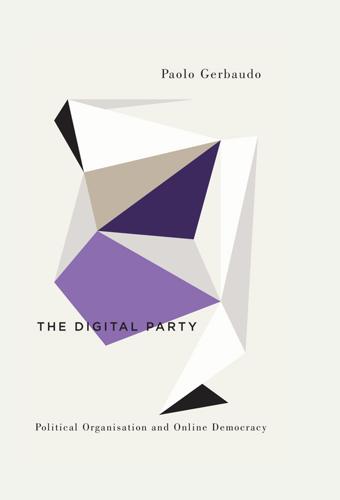
The Digital Party: Political Organisation and Online Democracy
by
Paolo Gerbaudo
Published 19 Jul 2018
I am grateful to the 30 interviewees who contributed their experience and ideas, and to all the people who volunteered to read an early draft of the book, providing useful comments: Maria Haberer, Graham Jones, Manfredi Mangano Francesco Screti, Lazaros Karavasilis, Antonio Calleja Lopez, Che Brandes-Tuka, Jasper Moriarty, Giorgios Venizelos, Felicia Panosoglu, Mawii Zothan, Asmita Jain, Patrick McCurdy, Vicente Rubio, Lorenzo Coretti, Julia Schönheit, Robin Piazzo, Francesco Screti, Enrico Padoan and Gavin Brown. My thanks also go to Alex Foti, who provided very insightful comments and advice on style for this book; to Javier Medina Lopez for discussions about the relationship between movement and parties in Spain; to Nick Srnicek and Mark Cotè for valuable discussion about digital capitalism and the logic of Big Data. Introduction On 18 May 2018, the registered members of the Movimento 5 Stelle (Five Star Movement) were convoked via email to participate in an important online consultation due to take place from 10 a.m. to 8 p.m. A window was created on the main dashboard of the Rousseau participatory portal to vote on the ‘government contract’, the agreement that had long been negotiated with Lega, the right-wing populist party of Matteo Salvini.
…
Index Affordances: 5, 66, 68–9, 101 Agora voting: 119–20, 124–5 Alcibiades: 185 Alliance for Workers’ Liberty: 103 Alliance of Liberals and Democrats for Europe (ALDE): 65 Anticapitalism: 64 Appendino, Chiara: 10 Arab Spring: 168 Avaaz: 74, 169 Bauman, Zygmunt: 92 Benevolent dictator: 19, 159–60, 185 Berlusconi, Silvio: 33, 35, 150, 154 Bezos, Jeff: 19, 66 Big Data: 4, 46, 50 Big organising: 76 Blair, Tony: 35, 166 Bonaparte, Charles-Louis Napoléon: 110 Bonapartism: 110 Bond, Becky: 14, 157, 172 Bratton, Benjamin: 71–3 Breznev, Leonid: 148 Bureaucracy: 17–8, 31, 35, 40, 148, 179–80, 183, 191 As a problem in political parties: 40–1 Consultants: 18 Conflict between bureaucracy charismatic leadership: 148–9, 151 Elimination of: 75–6, 89, 96–7, 105, 183 Microbureaucracy: 97 Party in central office: 94, 95 Caesarism: 150–2 Callaghan, James: 148 Cambridge Analytica: 50, 56 Carmena, Manuela: 11 Casaleggio Associati: 9, 102, 116, 125, 141–2, 160 Casaleggio, Davide: 15, 61, 81, 89, 167 Casaleggio, Gianroberto: 9, 60–1, 94, 97, 116, 154, 160–1 Casas Moradas: 104 Castells Manuel: 23, 146 Clinton, Hillary: 54, 158 Colau, Ada (mayor of Barcelona): 11 Collaborative policy development: 17, 107, 130–3, 141, 180 Comisión de Garantias (guarantee committee, Podemos): 136 Complutense University of Madrid: 11, 155 Computer Chaos Club (Germany): 124 Connected outsiders: 20, 43–4, 50–1, 55, 177 Income: 53–4 Young vote: 52 Education: 53 Representatives’ sociodemographics: 54 Conservative Party (UK): 31 Considerant, Victor: 126 Consul (decision-making software): 108, 115, 120–2 Corbyn, Jeremy: 12, 151 Dalton, Richard: 35 Decidim: 108, 124 Deliveroo: 13, 49, 50 De Tocqueville, Alexis: 27 Dean, Howard: 13 Dean, Jodi: 26 Decision-making platforms: 105–15 Della Volpe, Galvano: 28 Democracy Deliberative democracy: 38, 60, 91, 108, 109–11, 114, 123–4, 127 Direct democracy: 61, 142, 180 Democracy quality: 40, 128, 186 Demands for “real democracy”: 59 Democratic centralism: 41 Conditions for: 129 Criticism of existing: 58–9 Criticism of: 110 Intraparty: 13 OMOV (one man, one vote system): 102 Participatory budgeting: 60 Participatory democracy: 3, 17 DemocracyOS: 108 Democrazia Proletaria (Proletarian Democracy): 26 Di Battista, Alessandro: 83, 100, 135, 157 Di Maio, Luigi: 1–3, 135, 157, 181 Digital democracy: External validation: 125 Discussion of direct legislation: 110 Management of online decision-making: 127–30, 191 Online democracy: 60 Need for guarantee rules: 143 Participatory legislation: 17 Reactive democracy: 18, 127, 163, 185–6 Thresholds: 121, 124 Digital capitalism: 46–7, 93 Digital disruption: 18 Economic rise: 47, 49 Gig economy: 50 Digital parties (also platform parties): 3–5, 14, 18–9 As cloud parties: 79 As forum parties: 79 As start-up parties: 80 Conflicts between national leadership and local groups: 102 Data gathering: 69, 73–4 Platform as policy platform: 77, 189 Free labour: 18, 69, 75, 178, 191 Free membership: 17, 69 Free registration: 74 History: 7–10 Low marginal costs of communication: 5, 48 Low staff numbers: 49 Similarities with platform companies: 5 Similarities with television party: 78 Digital platforms: 69 Architecture: 115–6 Definitions: 69 Hierarchies: 73 Reintermediation: 71 Standardisation: 71 Supposed neutrality: 72 Digital revolution: 44–6, 48 And Fordism: 31 As a cleavage: 45–7 Comparison with industrial revolution: 26, 28, 30–1, 33, 44–7, 49, 51, 54 Digital rights: 55–7 Privacy: 55 Digital surveillance: 55 Reform of copyright: 56 Digital Bill of rights (UK): 58 Marco Civil da Internet (Brazil): 58 Direct Connect (file-sharing hub): 8 Direttorio (M5S Directorate): 135 Discorsi all’umanità: 150, 154 Disintermediation: 66, 70, 71, 75–6, 109 Distributed centralisation: 17, 72, 76, 145, 183 Distributed organising: 14, 75, 182 Dryzek, John S.: 109 Dunbar number: 98 Duverger, Maurice: 31, 39–4, 75, 165 Distinction between direct and indirect party: 41 Theory of party structure: 40 Dyer-Whiteford, Nick: 49 Echenique, Pablo: 136 Economic crisis: 20, 27, 43, 51–3, 145–6 Eggers, David: 94 Emerson, Ralph Waldo: 24 Encadrement: 163, 165, 174 Engström, Christian (Pirate Party MEP): 55 Environmental movements: 25, 32, 146 Erdogan, Tayyip: 110 Errejón, Iñigo: 11, 138, 149, 160–1 Europe of Freedom and Direct Democracy (EFDD): 65, 135 Exley, Zack: 14, 157, 172 FAANGs (Facebook, Amazon, Apple, Netflix, Google): 49–50, Facebook: 2–4, 12–3, 43, 47, 49, 56, 66, 68–74, 84, 144, 156, 163, 169 Facebook live: 3 Newsfeed algorithm: 106 Falkvinge, Rick: 8, 56, 156, 159, 173, 181 Feminist movements: 25, 145 Fico, Roberto (president of the Italian lower chamber): 3, 95, 100, 135 Forza Italia (Italy): 33, 35, 52 Foti, Alex: 50 France Insoumise: 4, 12, 74, 81, 83, 86, 87, 91, 93, 96–9, 108, 121–2, 132–3, 139, 144, 158–9, 166–70, Avenir en Commun electoral programme: 122, 132 Groupes d’appui (support groups): 97–9 Friedman, Milton: 64 Friedman, Thomas L.: 23 Galapagar case: 138–9 Game of Thrones: 156 Ghibellines: 28 Gillespie, Tarleton: 69 Gramsci, Antonio: 7, 27, 37–8, 41, 43–4, 75, 77, 105, 143, 164 Theory of party structure: 38–9, 164 On the passivity of the mass: 147 On leadership: 151–2, Great Recession: 4, 27, 46, 168, Green Party: 10, 16, 26, 27 Basisdemokratie (grassroots democracy): 16 Grillo, Beppe: 2–3, 9, 43, 59–60, 74–5, 80, 83, 89, 95, 100–1, 135, 141, 153, 154–5, 158–60, 181 theatre shows: 154 Guelphs: 28 Guevara, Che: 25, 26, 148 House of Cards: 25 Hyperleader: 17, 144–62 And reactive democracy: 185 As benevolent dictator: 186 Characteristics: 153–5 Relationship with advisors: 159–60 Reputation: 154 Iglesias Turrion, Pablo: 11, 86, 94, 136, 138–9, 145, 149–50, 151, 153, 155–6, 158–60, 181 Italia a 5 Stelle (Five star movement annual gathering): 1–3 Izquierda Unida (IU): 136 Julius Caesar: 19, 28, 150, 152, 159, 161 Kant, Immanuel: 184 Karpf, David: 13, 169 Katz, Richard: 7, 30, 32, 59, 99 Kautsky, Karl: 110 Kennedy, John Fitzgerald: 33 Kirchheimer, Otto: 7, 32 Klug, Adam: 12, 171 La Tuerka: 150, 156 Labour Party: 12, 14, 29, 31, 35, 41, 52, 54, 107–8, 111, 148, 151, 156, 165, 168, 177 Lansman, Jon: 12, 103, Lavapies (neighbourhood in Madrid): 94 Leadership: 146–8 Charismatic leadership: 148–9 Leaderlessness: 77, 146, 181, 183, 187 Legal-rational: 147 Routinisation of charisma: 188 Liberalism: 28 Linux: 19, 82, 86, 159 Liquid Feedback: 4, 16, 61, 112–4, 121, 124 Loomio: 108, 112, 114–5 Machiavelli, Niccolò: 151, 186 Macron, Emmanuel: 13, 108, 140 Madison, James: 24 Mair, Peter: 7, 30, 32, 59, 99 Marx, Karl: 68, 93 May’s law: 124, 170 Mélenchon, Jean-Luc: 12, 52, 53, 86–8, 93, 107, 122, 132, 144–5, 156–9 Michels, Robert: 7, 16, 27, 30–1, 36–9, 41, 103, 110, 140, 142, 147, 152–3, 175, 179 Iron law of oligarchy: 36–7 Theory of party structure: 39 Microbureaucracy: 97 Mill, John Stuart: 24 Momentum: 26, 73, 80, 83, 87, 96, 102–3, 107, 166, 171–2 Monedero, Juan Carlos: 11 Montero, Irene: 138–9, 158 Morgan, Gareth: 67 MoVimento 5 Stelle (Five Star Movement): 1–5, 7, 9–19, 26, 43, 52–4, 57, 60–4, 66, 73–4, 77, 80–1, 83, 86–90, 93, 95–7, 99, 100–2, 105, 107–8, 112, 115–7, 119–20, 124, Meetup groups: 97, 99–102 Referendums for the expulsion of members: 135 Salary restitution programme: 57 Movimento Sociale Italiano (rightwing party in Italy): 2 NationBuilder (political campaigning app): 12, 107, 121, 124 Nazism: 24 Nielsen, Jakob: 91 Law of participation: 91 Nixon, Richard: 33 Nvotes: 108, 119 Obama, Barack: 11, 13 Olivetti, Adriano: 88–9, 154 Optimates: 28 Organisation: 67 Delegation: 17 Elimination of middlemen: 15, 183 Integration of technology: 13 Iron law of oligarchy: 36–7, 185 Lean management: 15 Organisational fragility: 187 Netroots organisations: 13 Ostrogorski, Moisei: 24, 27, 31, 104, Paine, Thomas: 111 Panebianco, Angelo: 7, 27, 32, 34–5 Parlamentarie (M5S online primaries): 10 Parliament et Citoyens (French parliament digital democracy project): 107 Parsons, Talcott: 45 Participa (Podemos participatory portal): 12, 73, 132 Participation And anti-party suspicion: 85–8 As an idea in contemporary culture: 84 And distrust towards bureaucracy: 150 And lack of party office: 96 Aristocratic tendencies: 164, 173 Difference between militant and sympathiser: 174 Habitueés of meetings: 103 Individualisation of participation: 102–3, 188 In parties’ discourse: 82–4 Lurking supporters: 174 Participationism: 81–9, 191 Participation aristocracy: 91 Participation divide: 91 Participatory representation: 123 Passive membership: 175 Superbase: 17, 152, 162–72 Partido de la Red (Party of the Net, Argentina): 8 Partido Popular (Popular Party): 11 Partido Socialista Obrero Español (PSOE): 11, 14, 108, 166, 190 Partido X (X Party, also known as the Party of the Future, Spain): 8 Partito Comunista Italiano (Italian Communist Party): 31, 35, 42, 92, 93, 95 Partito Democratico (Democratic Party, Italy): 10, 35, 52–3, 111 Partito Socialista Italiano (Italian Socialist Party, PSI): 153 Pericles: 185 Pirate Bay (file sharing server): 8, 56, 58, 166 Pirate Parties: 4, 7–9, 12–3, 16, 26, 48, 50, 52, 54–8, 61–2, 64, 66, 73, 77, 82, 86, 88, 93, 99, 105, 107, 112, 115, 159, 166, 172, 174, 177, 178, 180–1 Piratar (Iceland): 8 Pirate Party International (PPI): 8 Piratenpartei (Germany): 8, 114 Piratpartiet (Sweden): 8, 55, 166, 167 Česká pirátská strana (Czech Pirate Party): 8 Place Fear of, terror loci: 93, 95 Organisational principle of: 42 Platformisation: 14, 67, 69, 73, 76–7, 179, 183–4, 187, Podemos: 4, 7, 9, 11–4, 16, 19, 26, 52–5, 57, 61–3, 65–6, 69, 73, 81, 86–8, 93–8, 104–5, 107–8, 112, 115, 119–21, 123–5, 131–2, 136–43, 149–51, 153, 155–60, 166–70, 173–4, 177, 180–1, 193 Circles (Podemos’ local groups): 97–8, 115, 132 Citizens’ Council (Podemos’ central committee): 11, 96, 131, 136 Iniciativas Ciudadanas and Popular Podemos (Podemos Citizens’ and Popular initiatives): 121, 131 Plaza Podemos: 16, 86, 120, 131 Political Parties: Astroturf parties: 26 Definitions of: 27–9 Cadres: 18, 161, 179, 183 Catchall: 33 Integration: 182 Electoral/professional parties: 33 Party systems: 26 Political careers: 99 Mass parties: 30–2 Movement parties: 25 New Left: 27 Party sections, cells: 97–8 Passivity of the mass: 186 Patronage parties: 28 Return of: 25–8 Suspicion towards: 22–4 Television parties: 33–6 Populares (Party in ancient Rome): 28 Populism: 1, 4, 9, 10, 12, 15, 27, 39, 44 Poulantzas, Nicos: 27 Power struggles: 161, Precariat: 50 Proceduralism: 188, 189, Protest movements: 1968: 26 2011: 36 Environmentalist: 25, 146 Feminist: 25, 146 Raggi, Virginia: 10 Rajoy, Mariano: 138 Reduction of membership of traditional parties: 165 Rees, Emma: 12, 103 Renewable energy: 62–3 Republican Party: 28 Republique En Marche (REM, Macron’s movement): 108 Revelli, Marco: 31–2 Rittinghausen, Moritz Robespierre Rokkan, Stein: 45 Role as diffusors of messages: 176 Rousseau (5 Star Movement decision-making system): 2, 10–11, 116–7 Lex functions: 117, 131 Lex Iscritti: 117 Hacker attacks: 119 Villaggio Rousseau: 2 Rousseau, Jean-Jacques: 37 Salvini, Matteo: 1, 13 Sanchez, Pedro: 11 Sanders, Bernard (US senator and presidential primary candidate in 2016): 13 Scarrow, Susan: 28, 128–9 Schneider, James: 12 Schumpeter, Joseph: 38 Scudo della Rete (Shield of the Net): 57 Security Silicon Valley: 15 Signup process: 168–9 Skocpol, Theda: 42 Snowden, Edward: 50 Sozialdemokratische Partei Deutschlands (SPD): 14 Srnicek, Nick: 71 Stalinism: 24 Stallman, Richard (open source activist): 116, 124 Super-volunteer: 171–3 Teatro Smeraldo, Milan: 9 Telegram: 4 The Apprentice: 156 TOR (The onion router): 56 Tormey, Simon: 60 Torvalds, Linus: 159 Transparency: 57 Trump, Donald: 6, 35 Tufekci, Zeynep: 187 Twitter: 4, 124 UK Independence Party (UKIP): 65 Universal basic income: 63, 131 Universal basic services: 64 V for Vendetta (film): 3 Vaffanculo Day (literally ‘Fuck Off Day’, M5S protest in 2007): 9 Veltroni, Walter: 93 Von Hayek, Friedrich: 25 Von Treitsche, Heinrich: 24 Wales, Jimmy: 159 Washington, George Weber, Max: 7, 27–9., 31, 37–8, 40, 147, 151, 185 Weil, Simone (Christian anarchist); WhatsApp: 4 Whigs (Liberal party, UK): 22 Wikipartido (Wikiparty, Mexico): 8 Wikipedia: 19, 82, 86, 91, 159 World Social Forum: 25 Yang, Guobin: 44 Your Priorities: 108 Zeming, Jang: 148 Zuckerberg, Mark: 63, 66, 158

Rogue States
by
Noam Chomsky
Published 9 Jul 2015
Stuart Ewen, Captains of Consciousness: Advertising and the Social Roots of the Consumer Culture (McGraw-Hill, 1976); Bagdikian, The Media Monopoly (fifth ed., Beacon, 1997). 31. Bruce Knecht, “Magazine Advertisers Demand Prior Notice of ‘Offensive’ Articles,” WSJ, April 30, 1997. 32. Dan Schiller, Digital Capitalism (MIT Press, 1999). 33. Preston, in Preston et al., Hope and Folly. 34. Herbert Schiller, Information Inequality: The Deepening Social Crisis in America (Routledge, 1996); Edward Herman and Robert McChesney, The Global Media (Cassell, 1997); Schiller, Digital Capitalism; McChesney, Rich Media, Poor Democracy (Univ. of Illinois Press, 1999). 35. Marshall Clark, “Cleansing the Earth,” Inside Indonesia, Oct.-Dcc. 1998. MAI, see my Profit Over People. 10.

Platform Capitalism
by
Nick Srnicek
Published 22 Dec 2016
‘There Are Probably Way More People in the “Gig Economy” Than We Realize’. Fusion. Accessed 24 March. http://fusion.net/story/173244/there-are-probably-way-more-people-in-the-gig-economy-than-we-realize (accessed 29 May 2016). Wittel, Andreas. 2016. ‘Digital Marx: Toward a Political Economy of Distributed Media’. In Marx in the Age of Digital Capitalism, edited by Christian Fuchs and Vincent Mosco, pp. 68–104. Leiden: Brill. World Bank. 2016. ‘World Development Reports, 2016: Digital Dividends’. Washington, DC. http://www.worldbank.org/en/publication/wdr2016 (accessed 29 May 2016). World Economic Forum. 2015. ‘Industrial Internet of Things: Unleashing the Potential of Connected Products and Services’.

This Is Not a Drill: An Extinction Rebellion Handbook
by
Extinction Rebellion
Published 12 Jun 2019
Digital platforms have turned an already exploitative and extractive marketplace (think Walmart) into an even more dehumanizing successor (think Amazon). Most of us became aware of these downsides in the form of automated jobs, the gig economy and the demise of local retail. But the more devastating impacts of pedal-to-the-metal digital capitalism fall on the environment and the global poor. The manufacture of some of our computers and smartphones still uses networks of slave labour. These practices are so deeply entrenched that a company called Fairphone, founded from the ground up to make and market ethical phones, learned it was impossible.
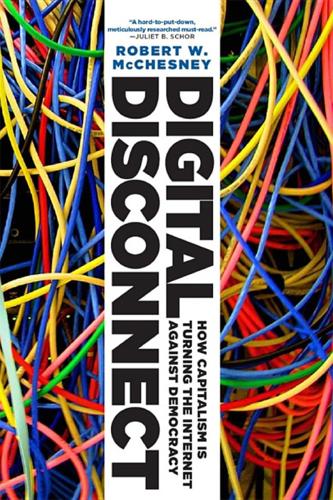
Digital Disconnect: How Capitalism Is Turning the Internet Against Democracy
by
Robert W. McChesney
Published 5 Mar 2013
Matthew Crain, “The Revolution Will Be Commercialized: Finance, Public Policy, and the Construction of Internet Advertising in the 1990s,” PhD dissertation, University of Illinois at Urbana-Champaign, 2013. 45. S. Derek Turner, “The Internet,” in Changing Media: Public Interest Policies for the Digital Age (Washington, DC: Free Press, 2009), 12, www.freepress.net/files/changing_media.pdf. 46. Dan Schiller, Digital Capitalism: Networking the Global Market System (Cambridge, MA: MIT Press, 1999), 128. 47. The celebratory and largely fatuous coverage of the Internet continues in what remains of the news media to this day. In a 2012 report for the Columbia Journalism Review, Michael Massing noted that “reporters breathlessly chronicle the fortunes, mansions, and attire of the digerati.”
…
(New York: John Day, 1934). 102. Joseph Turow, The Daily You: How the New Advertising Industry Is Defining Your Identity and Your Worth (New Haven, CT: Yale University Press, 2011), 40–41. For a superior discussion of the entire debate over commercializing the Internet in the 1990s, see Dan Schiller, Digital Capitalism: Networking the Global Market System (Cambridge, MA: MIT Press, 1999). 103. Turow, Daily You, 49. 104. Ibid., 57–63. 105. See Lauar J. Gurak, Cyberliteracy: Navigating the Internet with Awareness (New Haven, CT: Yale University Press, 2001); and Reg Whitaker, The End of Privacy: How Total Surveillance Is Becoming a Reality (New York: The New Press, 1999). 106.

Automation and the Future of Work
by
Aaron Benanav
Published 3 Nov 2020
A Low Demand for Labor 1 Wassily Leontief, “Technological Advance, Economic Growth and the Distribution of Income,” Population and Development Review, vol. 9, no. 3, 1983, p. 409; Erik Brynjolfsson and Andrew McAfee, The Second Machine Age: Work, Progress, and Prosperity in a Time of Brilliant Technologies, W.W. Norton, 2014, p. 179. Nick Dyer-Witheford speaks of a “deepening pool of unemployed populations, no longer required by digital capital” (Cyber-proletariat: Global Labour in the Digital Vortex, Pluto, 2015, p. 3), while Andrew Yang refers to a “growing mass of the permanently displaced” (The War on Normal People: The Truth about America’s Disappearing Jobs and Why Universal Basic Income Is Our Future, Hachette, 2018, p. xli). 2 According to science fiction writer Arthur C.

The Nowhere Office: Reinventing Work and the Workplace of the Future
by
Julia Hobsbawm
Published 11 Apr 2022
(HarperCollins, 2015 [1968]) Smil, Vaclav, Growth: From Microorganisms to Megacities (MIT Press, 2020) Suzman, James, Work: A History of How We Spend Our Time (Bloomsbury, 2021) Usher, Neil, The Elemental Workplace (LID Publishing, 2018) Wajcman, Judy, Pressed for Time: The Acceleration of Life in Digital Capitalism (University of Chicago Press, 2015) Wallman, James, Time and How to Spend It: The 7 Rules for Richer, Happier Days (W. H. Allen, 2019) Chapter 2: Shift 2: Worker Beings Armstrong, Leah, and Felice McDowell (eds), Fashioning Professionals: Identity and Representation at Work in the Creative Industries (Bloomsbury Academic, 2018) Auerbach, Annie, Flex: Reinventing Work for a Smarter, Happier Life (HQ, 2021) D’Souza, Steven, and Diana Renner, Not Knowing: The Art of Turning Uncertainty into Opportunity (LID Publishing, 2014) Duffy, Bobby, Generations: Does When You’re Born Shape Who You Are?
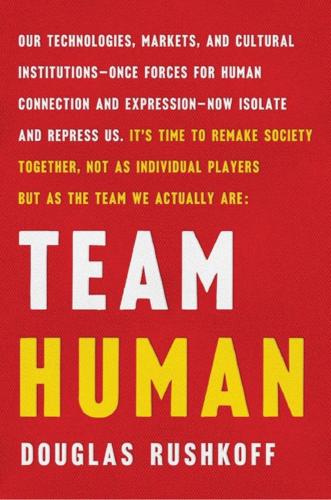
Team Human
by
Douglas Rushkoff
Published 22 Jan 2019
The blockchain replaces the need for central authorities such as banks by letting everyone on a network authenticate their transactions with computer encryption. It may disintermediate exploitative financial institutions but it doesn’t help rehumanize the economy, or reestablish the trust, cohesion, and ethos of mutual aid that was undermined by digital capitalism. It simply substitutes for trust in a different way: using the energy costs of blockchain mining as a security measure against counterfeiting or other false claims. (The computer power needed to create one bitcoin consumes at least as much electricity as the average American household burns through in two years.)
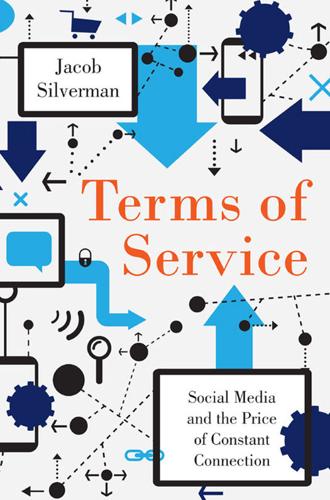
Terms of Service: Social Media and the Price of Constant Connection
by
Jacob Silverman
Published 17 Mar 2015
.† Instantaneous global communication has failed to stop war, genocide, or famine; women remain second-class citizens in large parts of the world; authoritarian propaganda travels as easily online as human rights reports (in some countries, more easily); smartphones have become the preeminent surveillance tool for corporations and governments alike. While many once foresaw digital capitalism as the harbinger of an era of widespread prosperity, legacy industries such as newspapers have crumbled, and income inequality is now higher than ever—particularly in San Francisco, home to many technology-industry employees who are shuttled daily on private buses to and from massive suburban campuses, where they’re showered with amenities and services and never have to interact with residents of the surrounding communities.
…
At its furthest reaches, the informational appetite epitomizes the idea that we can know one another and ourselves through data alone. It becomes a metaphysic. Facebook’s Graph Search, arguably the first Big Data–like tool available to a broad, nonexpert audience, shows “how readily what we ‘like’ gets translated into who we are.” Zuckerberg is only one exponent of what has become a folkway in the age of digital capitalism. Ever connected, perhaps fearing disconnection itself more than the fear of missing out, we live the informational appetite. We have internalized and institutionalized it by hoarding photos we’ll never organize, much less look at again; by tracking ourselves relentlessly; by feeling a peculiar anxiety whenever we find ourselves without a cell phone signal.
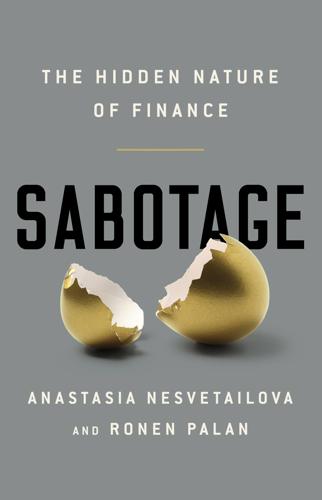
Sabotage: The Financial System's Nasty Business
by
Anastasia Nesvetailova
and
Ronen Palan
Published 28 Jan 2020
Indeed, the experience of junk bonds, securitization or credit derivatives suggests that it is never the invention of a specific financial product that endows the innovator with a degree of power and profit, but the wider institutionalization of this product in the infrastructure of the new market, a regulatory niche and an accommodating political-economic system. And that is something, we believe, regulators should begin to take on board. As this book goes to press, economies around the world are gripped by the advance of artificial intelligence (AI) and a spate of new financial technologies. The emergence of data as the most valuable asset in the digital capitalism of the twenty-first century, as well as tighter regulation of the traditional financial sector, is paving the way for a new means of doing the business of finance. Many of these innovations are celebrated in the market and beyond. Blockchain – a distributed ledger technology underpinning the drive – is heralded as the radically new way to connect people across various sectors and walks of life.
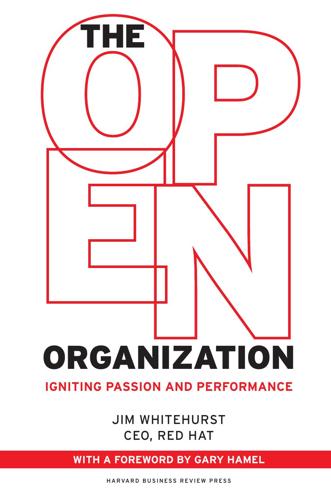
The Open Organization: Igniting Passion and Performance
by
Jim Whitehurst
Published 1 Jun 2015
Sloane, Paul, ed. A Guide to Open Innovation and Crowdsourcing. Philadelphia: Kogan Page Limited, 2011. Stack, Jack, with Bo Burlingham. The Great Game of Business. New York: Crown Business, 2013. Surowiecki, James. The Wisdom of Crowds. New York: Anchor, 2005. Tapscott, Don, David Ticoll, and Alex Lowy. Digital Capital. Boston: Harvard Business School Press, 2000. Tapscott, Don, and David Ticoll. The Naked Corporation. New York: Penguin, 2003. Tapscott, Don, and Anthony D. Williams. Wikinomics. New York: Portfolio Penguin, 2008. ——— . Macrowikinomics. New York: Portfolio Penguin, 2010. Thompson, Kenneth R., Ramon L.

McMindfulness: How Mindfulness Became the New Capitalist Spirituality
by
Ronald Purser
Published 8 Jul 2019
For Kabat-Zinn, the miracle of mindfulness is that we can “drop in” (a phrase he is very fond of using) to “being” and simply be present. Dwelling in this non-discursive state is equated to a form of spiritual liberation. MBSR enthusiasts consider this shift to be a countercultural force, as the practice provides a peaceful respite from the relentless pressures and constant distractions of digital capitalism. Although there is clearly therapeutic value in stepping — however temporarily — out of the stream of what Kabat-Zinn calls “A.D.D.,” mindfulness over-romanticizes “being.” We are told it appeals to Westerners because we have (supposedly) lost touch with experience; our lives have become too stressful and our concerns too overwhelming to appreciate the simple pleasures of being alive.

Makers
by
Chris Anderson
Published 1 Oct 2012
This was, to be fair, not a terribly original idea. Around that time, all sorts of other “business-to-business” marketplaces, with names such as Ariba, VerticalNet, and CommerceOne (and lots of “e” prefixes from eMetals to eTextiles), were starting up in industries from cars to plastics. Driven by the dream of “frictionless digital capitalism,” as Bill Gates’s book The Road Ahead put it at the time, they were all going to revolutionize supply-chain management. Some sought to use a reverse-auction model like eBay to drive prices down. Others were consortia of big buyers in an industry designed to gang together to achieve Wal-Mart–like purchasing power (something that allowed me to use the term polyopsony—a monopoly of many buyers—for the first time in The Economist, as far as I know, which is something that I am inexplicably proud of).
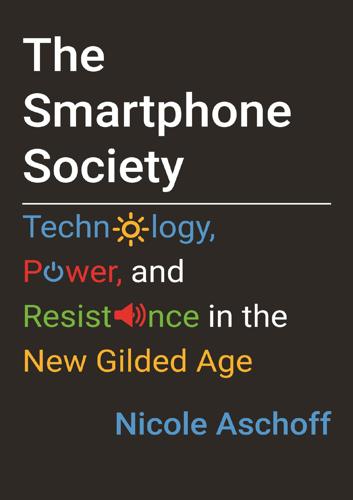
The Smartphone Society
by
Nicole Aschoff
New York: Sara Crichton Books, 2013. Waddell, Kaveh. “Why Bosses Can Track Their Employees 24/7.” Atlantic, January 6, 2017. Wagner, Kurt. “Facebook to Raise Pay for Thousands of Contract Workers, Including Content Moderators.” Bloomberg, May 13, 2019. Wajcman, Judy. Pressed for Time: The Acceleration of Life in Digital Capitalism. Chicago: University of Chicago Press, 2016. Wang, Maya. “China’s Chilling ‘Social Credit’ Blacklist.” Wall Street Journal, December 11, 2017. Waters, Richard, Rochelle Toplensky, and Aliya Ram. “Brussels’ €2.4bn Fine Could Lead to Damages Cases and Probes in Other Areas of Search.” Financial Times, June 28, 2017.
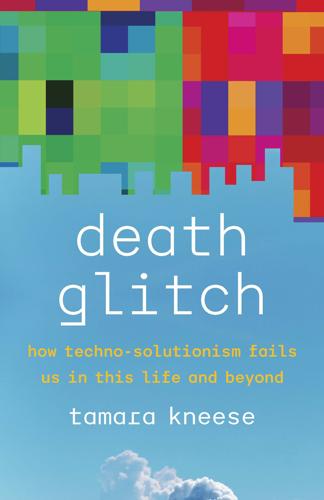
Death Glitch: How Techno-Solutionism Fails Us in This Life and Beyond
by
Tamara Kneese
Published 14 Aug 2023
“Platform Labor: On the Gendered and Racialized Exploitation of Low-Income Service Work in the ‘On-Demand’ Economy.” Information, Communication, and Society 20, no. 6 (2017): 898–914. Vitello, Tom. “Tom West Dies at 71.” New York Times, May 27, 2011. www.nytimes.com/2011/05/28/business/28west.html. Wajcman, Judy. Pressed for Time: The Acceleration of Life in Digital Capitalism. Chicago: University of Chicago Press, 2014. Walter, Tony, Rachid Hourizi, Wendy Moncur, and Stacey Pitsillides. “Does the Internet Change How We Die and Mourn? Overview and Analysis.” OMEGA: Journal of Death and Dying 64, no. 4 (2012): 275–302. Wang, Qingya, Wei Chen, and Yu Liang. “The Effects of Social Media on College Students.”
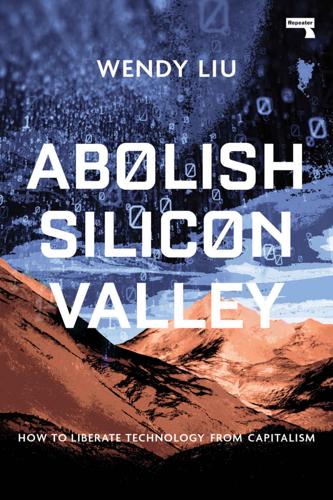
Abolish Silicon Valley: How to Liberate Technology From Capitalism
by
Wendy Liu
Published 22 Mar 2020
For a first-person account of Yale University’s attempts to prevent graduate students from unionising, see “Spadework” by Alyssa Battistoni in the Spring 2019 issue of n+1, published at https://nplusonemag.com/issue-34/politics/spadework/. 9 See, for example, “Purdue Pharma, maker of OxyContin, files for bankruptcy” by German Lopez for Vox, published September 16, 2019 at https://www.vox.com/policy-and-politics/2019/9/16/20868487/purdue-pharma-oxycontin-bankruptcy-opioid-epidemic. 10 See, for example, Emily Guendelsberger’s book On the Clock: What Low-Wage Work Did to Me and How It Drives America Insane (Little, Brown and Co., 2019). 11 For commentary on corporation expansion in the era of digital Capitalism, see “Landlord 2.0: Tech’s New Rentier Capitalism” by Jathan Sadowski for OneZero, published April 4, 2019, at https://onezero.medium.com/landlord-2-0-techs-new-rentier-capitalism-a0bfe491b463. 12 There’s a concept called “elite projection” that neatly summarises this phenomenon. Public transit consultant Jarrett Walker explains it in a blog post called “The Dangers of Elite Projection”, published July 31, 2017, at https://humantransit.org/2017/07/the-dangers-of-elite-projection.html. 13 See, for instance, Uber’s introduction of its opaque “Safe Rides Fee” on every trip, which brought in nearly half a billion dollars of extra revenue for the company that was never specifically set aside for safety measures, as Mike Isaac reports in his book Super Pumped: The Battle for Uber (W.
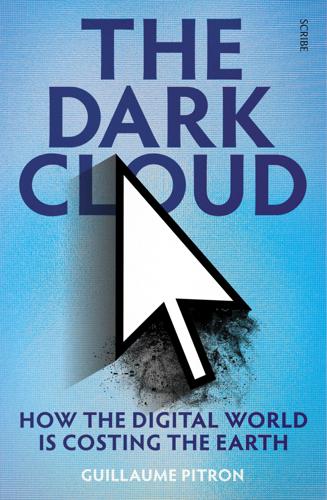
The Dark Cloud: How the Digital World Is Costing the Earth
by
Guillaume Pitron
Published 14 Jun 2023
In short, the digital world has the reputation of having no material impact at all. ‘We don’t even know how much power a single room with the lights left on consumes’, comments Inès Leonarduzzi, director of an organisation for more eco-responsible digital.8 Let alone the power consumption of the digital networks … A supposed lack of physical barriers gives digital capitalism the freedom to grow and thrive. The digital industry can even boast its positive role in preserving the planet by optimising our farming, industrial, and service methods, as we shall discover. According to such accounts, only by using digital technologies wholesale will we ‘save’ the planet.
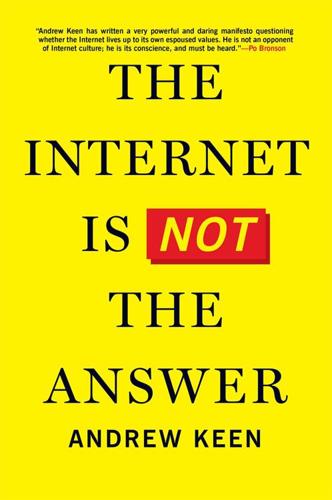
The Internet Is Not the Answer
by
Andrew Keen
Published 5 Jan 2015
This is an age so destructively unthinkable, in fact, that Clayton Christensen’s theory of the “Innovator’s Dilemma,” which suggests an orderly cycle of disruptors, each replacing the previous economic incumbent, now has itself been blown up by an even more disruptive theory of early-twenty-first-century digital capitalism. Christensen’s ideas have themselves been reinvented by the bestselling business writers Larry Downes and Paul F. Nunes, who’ve replaced the “Innovator’s Dilemma” with the much bleaker “Innovator’s Disaster.” “Nearly everything you think you know about strategy and innovation is wrong,” Downes and Nunes warn about today’s radically disruptive economy.59 In their 2014 book, Big Bang Disruption,60 they describe an economy in which disruption is devastating rather than creative.
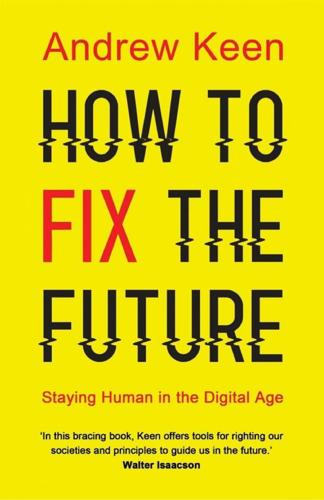
How to Fix the Future: Staying Human in the Digital Age
by
Andrew Keen
Published 1 Mar 2018
More than any other single individual in the world today, Europe’s antitrust chief is standing up to the business model and business practices of what, you’ll remember, the New York Times’ Farhad Manjoo calls the “Frightful Five”—the dominant winner-take-all tech companies whose collective $2.3 trillion valuation makes up an astonishing 14 percent of the entire $16.5 trillion GDP of the twenty-eight members of the European Union. According to the Financial Times columnist Philip Stephens, Margrethe Vestager is the woman who is saving digital capitalism from the digital capitalists. The problem with free market capitalism, digital or otherwise, Stephens says, is its natural and perhaps even inevitable tendency toward winner-take-all monopolies. “Unconstrained, enterprise curdles into monopoly, innovation into rent-seeking,” Stephens argues.
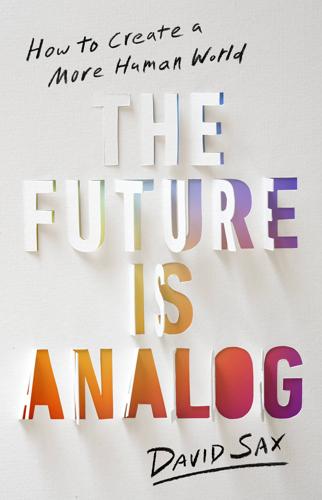
The Future Is Analog: How to Create a More Human World
by
David Sax
Published 15 Jan 2022
The human cost of Amazon’s singular vision of commerce’s digital future does not come from some sadistic desire of Jeff Bezos to inflict pain on workers, suppliers, and others for his own pleasure. It is, rather, the necessary consequence of his libertarian worldview and the particular form of digital capitalism it justifies, which is that commerce is a zero-sum game. In that game there are either winners or losers. There is no sharing. No compromise. No middle ground. Everything Amazon does, from click to delivery, positions it to end up on the winning side, whatever the cost. The alternative this presents to anyone wishing to do commerce online—be it an individual entrepreneur looking to sell a product, an established retail store, like Surf Ontario, trying to diversify its customer base, or a large global brand like Nike—is pretty stark.

Starbucked: A Double Tall Tale of Caffeine, Commerce, and Culture
by
Taylor Clark
Published 5 Nov 2007
The promise of celebrity sightings and free coffee makes for effective bait, but the spectators also came to celebrate the profits they had reaped from their investment in Starbucks — in just the last two years, the company’s shares had doubled in value, and they were soaring again even as Schultz spoke. One might think that after fifteen years of the company’s explosive growth, the onlookers would be a bit bored with their double-digit capital gains. But no; when Schultz reminded everyone that a $10,000 investment in Starbucks in 1992 would be worth nearly $650,000 that day, the audience stoked itself into a sort of financial rapture. Given this euphoric response, Schultz could have just lobbed some more figures at the crowd and relied on the mystery guest to provide the pizzazz.
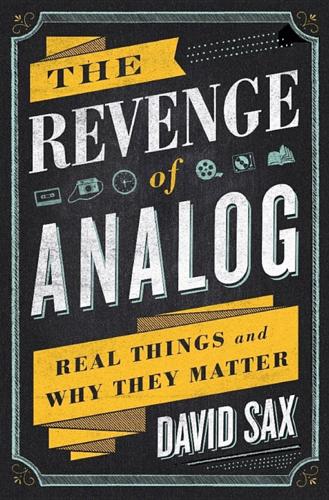
The Revenge of Analog: Real Things and Why They Matter
by
David Sax
Published 8 Nov 2016
There is money to be made in analog, whether you open a small record store or a large watch factory. For all the press around the success of Silicon Valley, the vast majority of our economy is still overwhelmingly analog, and these businesses more broadly benefit our society than those of more concentrated digital capital. As the business world increasingly focuses on digital, companies and individuals who can use analog in new and novel ways will increasingly stand out and succeed. Human input will become more valuable, and analog tools and practices–from note taking on whiteboards to translating digital experiences into the real world (such as retail stores)—will separate the leading businesses from the rest of the pack.
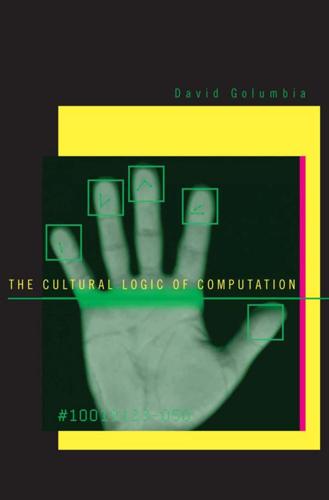
The Cultural Logic of Computation
by
David Golumbia
Published 31 Mar 2009
Language: An Introduction to the Study of Speech. London: Granada. Saul, John Ralston. 1992. Voltaire’s Bastards: The Dictatorship of Reason in the West. New York: Vintage Books. Schank, Roger C., and Kenneth Colby, eds. 1973. Computer Models of Thought and Language. San Francisco: Freeman. Schiller, Dan. 2000. Digital Capitalism: Networking the Global Market System. Cambridge, MA: The MIT Press. Schreibman, Susan, Ray G. Siemens, and John Unsworth, eds. 2001. A Companion to Digital Humanities. Malden, MA: Blackwell Publishing. Scheutz, Matthias, ed. 2002. Computationalism: New Directions. Cambridge, MA: The MIT Press.
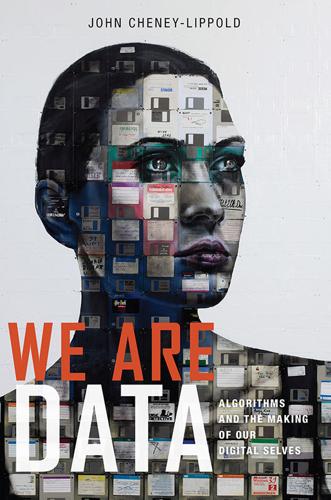
We Are Data: Algorithms and the Making of Our Digital Selves
by
John Cheney-Lippold
Published 1 May 2017
were planning to scoop Google preceded the deal, and the eventual purchase, valued at twenty times DoubleClick’s annual revenue, achieved what we could indulgently call a coup “d’ata” for Google. With this announcement, data itself had become a business, maybe even the central commodity for digital capital.54 Prior to the deal, Google had access only to my email and search history. Now, blessed by DoubleClick’s extensive network, Google also would know which pages I visited, how often I visited them, how long I stayed on those pages when I did, and which pages I went to before and after visiting a certain site.
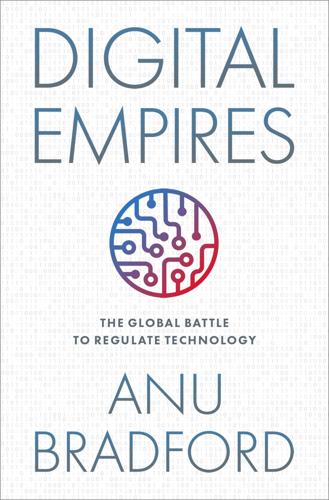
Digital Empires: The Global Battle to Regulate Technology
by
Anu Bradford
Published 25 Sep 2023
Today’s digital empires are primarily exporting their tech companies, technologies, and rules governing those technologies, thus shaping countries and individuals that fall under their influence toward the norms and values they espouse. Each digital empire holds a different vision for the digital economy, which is reflected in the regulatory models they have adopted at home and promoted abroad. These three leading regulatory models could be thought of as representing three “varieties of digital capitalism”—drawing on different theories about the relationship between markets, the state, and individual and collective rights.27 As described throughout this book, the US has pioneered a largely market-driven model, China a state-driven model, and the EU a rights-driven model. Each of these regulatory models involves societal choices that rest on diverging economic theories, political ideologies, and cultural identities.
…
A Medium Corporation, 76–77 Abdulemam, Ali, 284 Acacia, 204–5 ACCC (Australian Competition and Consumer Commission), 334, 341, 343–44 Accenture, 136–37 Act on Improvement of Transparency and Fairness in Trading on Specified Digital Platforms (TFDPA) (Japan), 346–47 Act on the Protection of Personal Information (Japan), 333–34 Adobe, 341 AdSense program (Google), 243 advertising AdSense program (Google), 243 Digital Advertising Tax (Maryland), 239–40 on Facebook, 154–55, 260, 384 political, 66 targeted, 382 Afghanistan, 274, 282 Africa, 261, 273, 297–300. see also specific countries by name Pakistan East Africa Cable Express, 300 Silicon Valley sites, 263 African Union (AU), 18–19, 318 AFSL (Anti-Foreign Sanctions Law) (China), 202–3 Agency for Global Media, 276–77 AHRC (Australian Human Rights Commission), 350–51 AI. see artificial intelligence AI Act (EU), 114, 144–45 AI Regulation (EU), 130 AirPods (Apple), 261 Alexander, Keith, 66–67 Algeria, 317–18 Alibaba, 108, 154–55 antitrust fines, 94, 98–99, 347–48, 391 Chinese state support, 8–9, 71, 96, 391–92 compliance with Chinese regulations, 391 DSR projects, 294–95, 296 e-commerce operations, 155, 300 global influence, 70–71, 73, 208–9, 262–63, 293 Memorandum of Understanding with Pakistan Trade Development Authority, 300 prosperity initiatives, 98–99 US audits, 177 US funding, 93–94 VIE structure, 174–75 Allison, Graham, 216–17 Allow States and Victims to Fight Online Sex Trafficking Act (FOSTA) (US), 51–52, 53–54, 55 Alphabet, 153–54 Amari, Akira, 316–17 Amazon, 108, 137 acquisitions, 2, 50–51 annual revenues, 2 antitrust investigations, 224, 242–44, 249, 345 China Books portal, 159–60 compliance with Chinese laws and regulations, 155, 159–61 e-commerce operations, 155, 262 EU market, 328 European headquarters, 142–43 global influence, 133–34, 259–60, 262–63 lobbying expenditures, 55–56 market capitalization, 2 monopolistic behavior, 53–54 Safe Harbor agreement, 229–30 tax payments, 126–27, 238–39 Amazon Prime Video, 372 Amazon Warehouse Services, 262 Amazon Web Services (AWS), 155, 160 Amazon.cn, 160 AMD, 247 America First policy, 213 American Chamber of Commerce, 357 American Civil Liberties Union (ACLU), 46, 355–56 American Innovation and Choice Online Act (US), 53–54 American market-driven regulatory model, 6–10, 21–22, 23–24, 28–29, 33–68, 91–94, 106–7, 131–36, 221–54, 366–69 decline, 361–64 global influence, 16–20, 257–89 Amnesty International, 78–79, 162–63 Andersen, Ross, 86 Andorra, 333–34 Android OS (Google), 153–54, 189–90, 243, 344–45 Anonymous.Kollektiv, 280–81 Ant Group, 71, 94, 96, 175, 300 anti-censorship principles, 267–68, 270–76 Anti-Foreign Sanctions Law (AFSL) (China), 202–3 Anti-Google Law (Telecommunications Business Act 31) (South Korea), 347 Anti-Monopoly Guidelines (China), 94–95, 347–48 Anti-Monopoly Law (China), 204 Anti-Sanctions Law (China), 200 antitrust regulation Brussels effect in, 342–48 Chinese laws and fines, 71, 94 enforcement of, 2, 5, 53–55, 140, 244–45, 358 EU law, 125–26, 140, 224, 242–50, 342–48 US law, 50–51, 53–54, 63–64 AOL, 46 APIG, 123 Apple, 33–34, 54–55, 108 acquisitions, 2, 50–51 AirPods, 261 annual revenue, 2 anti-tracking measures, 382–83 antitrust investigations, 242–45, 247, 249, 345, 347, 358 App Store, 377–78 App Tracking Transparency tool, 382–83 child protection systems, 39–40 Chinese App Store, 78–79, 153, 156–57 compliance with Chinese laws and regulations, 149–50, 151, 153, 156–57, 161, 178 compliance with EU laws and regulations, 324–25 compliance with Russian laws and regulations, 163, 312, 338 content moderation, 338, 341, 377–78 core values, 149 data collection, 61 data privacy policy, 149, 324, 330, 382–83 disinformation code, 341 EU market, 328 European headquarters, 142–43 global influence, 259–60, 261 government battles, 13–15 iCloud operations, 153 iMac, 59 iOS 15 phone, 39–40 iPad, 153 iPhone, 59, 133–34, 153, 215–16, 261, 382–83 lobbying activity, 55–56, 356–57 Mac, 153 market capitalization, 2 monopolistic behavior, 53–54 neuralMatch, 39–40 Russian law against, 312 Safe Harbor data transfer agreement, 229–30 sales in China, 153 sales in Europe, 236 Siri, 59 tax payments, 126–28, 236–37, 238–39, 243–44, 245 Weather app, 338 Apple Maps, 156–57, 338 Apple Pay, 153 Apple Store, 358 Apple Watch, 156–57, 261 Applied Materials, 204–5 apps Apple’s Chinese App Store, 156–57 Chinese, 165–72 Colorful Balloons (Facebook), 158–59 Quran, 156–57 Russian, 312 Smart Voting, 163 Weather (Apple), 338 Arab countries, 267–68 Arab Spring, 272, 285–86 Argentina, 260, 333–34 ARPANET, 59 artificial intelligence (AI) AI Act (EU), 114, 144–45 Chinese, 99–100, 102, 180–81, 208–9, 210–11, 295–96, 315–16 Digital Silk Road (DSR) projects, 296 Ethics Guidelines for Trustworthy AI (EU), 350–51 facial recognition, 138 gait recognition, 101 Global Artificial Intelligence Industry Data Report, 210 Governance Principles for a New Generation of Artificial Intelligence (Chinese Ministry of Science and Technology), 92 Next Generation of Artificial Intelligence Development Plan (China), 75 Plan for Development of the New Generation of Artificial Intelligence (2017 AI Development Plan) (China), 208–9 protections against harmful applications of, 113–15 regulation of, 15–16, 142, 251–52, 337, 348–53 research and development, 197, 374–75 surveillance operations, 85, 293, 315–16 tech standards, 305–6 US–China tech war, 186–87, 207–11 VC funding, 209–10 Asia, 260–61, 300. see also specific countries by name Asia-Pacific Economic Group, 266–67 AU (African Union), 18–19, 318 Audiovisual Media Services Directive (EU), 123 Austin, Lloyd, 209 Australia, 337 AI Action Plan, 350–51 AI Ethics Framework, 350–51 anti-censorship principles, 267–68 antitrust regulation, 343–44, 345 Clean Network, 321 Code of Practice on Disinformation and Misinformation, 341–42 content moderation, 341–42 digital trade agreements, 322 news industry regulation, 351–52, 383 nonregulation principle, 266–68 Privacy Act, 334 relations with China, 197–98, 319–20 restrictions on Chinese tech companies, 193–94, 319–20 search engine market, 260–61 techno-democracy, 389–90 Australian Communications and Media Authority (ACMA), 341–42 Australian Competition and Consumer Commission (ACCC), 334, 341, 343–44 Australian Human Rights Commission (AHRC), 350–51 Austria, 126–27, 239, 242 authoritarian governments, 364–66 authoritarianism, 135, 388–89 beyond China, 308–13 digital, 77–78, 99, 290–323 automated driving, 208–9 autonomy, strategic, 132–34, 186 AWS (Amazon Web Services), 155, 160 Azure cloud-computing service (Microsoft), 154–55 B3W (Build Back Better World) initiative (G7), 321–22 Backpage, 367–68 Backpage.com, 51–52, 64 Bahrain, 284 Baidu, 73, 108, 153–54, 165, 208–9 American funding, 93–94 VIE structure, 174–75 Baker, Stewart, 233 Balkin, Jack, 53–54, 56–57 Bankruptcy Code (US), 374 Barbrook, Richard, 34 Barlow, John Perry, 36–37 Barreto, Alexandre, 344–45 Barshefsky, Charlene, 224 batteries, 134–35 Bazelon, Emily, 363–64 BeiDou Navigation Satellite System, 300 Beijing, China, 153 Beijing News, 160–61 Beijing Sinnet Technology, 160 Belarus, 285–86 Belgium, 142 Belt and Road Initiative (BRI) (China), 206, 294, 305, 321–22 Benkler, Yochai, 34–35 Berlin, Germany, 263 Bezos, Jeff, 374–75 Bhatia, Karan, 158 Biden, Joe approach toward Chinese companies, 193, 213 approach toward regulation, 53–55, 168–69 Build Back Better World (B3W) initiative, 321–22 China doctrine, 185, 213–14 Executive Order on Enhancing Safeguards for United States Signals Intelligence Activities, 235–36 foreign policy doctrine, 390 internet freedom agenda, 278–79 Big Data of Public Tranquility Project (Marseille), 296–97 bilibili, 165 Binding Corporate Rules, 231–32 Bing search engine (Microsoft), 154, 160–61, 282–83 bipolar world, 386–88 bit taxes, 286 #BlackLivesMatter movement, 41, 362–63 Blackstone, 204 Blinken, Anthony, 198–99, 278 blockchain, 295–96 Blocking Rules (Rules on Counteracting Unjustified Extra-territorial Application of Foreign Legislation and Other Measures) (China), 200, 202 Boeing, 275–76 Borrell, Josep, 111 Brazil, 344–45 BRICS Leaders Declaration, 303 Lei Geral de Proteção de Dados Pessoais, 335–36 WhatsApp users, 260 Bremmer, Ian, 259–60 Breton, Thierry, 105, 134, 234 Brexit campaign, 17–18, 120–21, 280 BRI (Belt and Road Initiative) (China), 206, 294, 305, 321–22 BRICS Leaders Declaration, 303 Brilliant, Myron, 246 Brin, Sergey, 374–75 Brookings Institution, 207–8, 282–83 Brussels effect, 324–26 in antitrust regulation, 342–48 in artificial intelligence (AI), 348–53 beyond privacy, 337–53 in content moderation, 337–42 countermeasures, 356–59 criticism of, 353–56 in data privacy policy, 326–36 in digital services taxes (DSTs), 352 foreign tech companies and governments’ concern with, 353–59 in news industry regulation, 351–52 Build Back Better World (B3W) initiative (G7), 321–22 Bulgaria, 144 Burma, 270–71, 274–75, 285–86 ByteDance, 14–15, 98–99, 165, 166–67, 175 Content Quality Center, 89 global influence, 70–71, 293–94 US funding, 93 CAC (Cyberspace Administration of China), 88–89, 173, 175 Cadence, 218 California, 40, 58, 63–64, 347 Northern District, 169 Silicon Valley, 7–8, 33–35, 42, 92–93, 263, 283–84 California Consumer Privacy Act (CCPA), 54–55, 333, 336 California effect, 332 California Privacy Rights Act (CPRA), 54–55, 333, 336 Cambridge Analytica, 4, 7–8, 66, 120–21, 251, 368–69 Cameron, Andy, 34 Canada antitrust regulation, 345 Clean Network, 321 data privacy, 331 data protection law, 333–34 digital services taxes (DSTs), 352 digital trade agreements, 322 entrepreneurship, 374 G7 relations, 321–22 relations with China, 197–98 restrictions on Chinese tech companies, 193–94 techno-democracy, 389–90 Canon, 263 Capital Markets Union (CMU), 373 capitalism digital, 6 surveillance, 4, 66, 135–36, 368–69 varieties of, 106–7 Carnegie Endowment for International Peace, 318–19 Cayman Islands, 92–93 CCP (Chinese Communist Party), 8, 18, 24–25, 69–70, 71, 73–74, 164, 166–67, 192–93, 196–97, 296 CCPA (California Consumer Privacy Act), 54–55, 333, 336 CDA. see Communications Decency Act CEIEC (China National Electronics Import & Export Corporation), 301 cellphones, 274. see also smartphones censorship, 14–15, 76–77, 141. see also content moderation anti-censorship principles, 267–68, 270–76 in Apple’s Chinese App Store, 156–57 Chinese measures, 77–85, 150–51, 152, 154, 155–64 human, 83 optimal, 80–81 porous, 81–82 proactive, 14–15 Russian measures, 309–10 state control by, 78–85 Center for Democracy & Technology (CDT), 232, 357 Central Party School, 80–81 CFIUS (Committee on Foreign Investment in the United States), 195–96 Charanzovà, Dita, 249 Charter of Fundamental Rights of the European Union (EU Charter), 110–11, 112, 116, 226 Chen, Gang, 196 Chen, Yuyu, 82 Chen Weiss, Jessica, 219 child protection systems, 39–40 Children’s Online Privacy Protection Act (COPPA) (US), 44–45 Chile, 266–67, 322 Chilecon Valley (Santiago), 263 China 50 Cent Army, 83 Administrative Measures for Internet Information Services, 88 advertising market, 154–55 AI operations, 99–100, 388–89 AI research, 180–81, 208–11 Anti-Foreign Sanctions Law (AFSL), 202–3 Anti-Monopoly Guidelines, 94–95, 347–48 Anti-Monopoly Law, 204 Anti-Sanctions Law, 200 antitrust regulation, 71, 94, 97–98, 200, 204, 347–48 Apple operations, 149–50, 261 battles with tech companies, 13–16 battles with US and EU, 11–13, 15–16, 21, 26, 27 Belt and Road Initiative (BRI), 206, 294, 305, 321–22 BRICS Leaders Declaration, 303 censorship measures, 77–91, 150–52, 154, 156–57, 163–64, 180–81, 274 Central Party School, 80–81 cloud-computing service market, 154 CN2 network, 275–76 “common prosperity”, 5, 71–72, 95–96, 98–99, 347–48 criticism of US internet freedom agenda, 284, 288–89 cyber development, 70 cyberattacks, 134 Cybersecurity Law, 79–80, 94–95, 175, 201–2 Cybersecurity Review Measures, 94–95 Cyberspace Administration of China (CAC), 88–89, 173, 175 data localization requirements, 330–31 Data Security Law (DSL), 79–80, 94–95, 175, 201–2 digital authoritarianism, 135, 290–323 digital influence, 297–302 digital protectionism, 72–77, 214 Digital Silk Road (DSR) initiative, 18, 20, 27–28, 294–97, 314, 316–17, 391–92 digital sovereignty, 215 disinformation campaigns, 282–83 dual circulation strategy, 206 e-commerce, 94–95, 155 Export Control Law (ECL), 200–3 exports, 290–323 Five-Year Plan (14th), 206 global influence, 20, 27–28, 289, 290–92, 293–308, 313–23 Great Firewall, 8–9, 78–79, 203–4, 275–76 Houston, Texas consulate, 302 human rights abuses, 100–1, 185, 190–91 influence strategy, 302–8 infrastructure, 20, 290–323 International Strategy for Cooperation on Cyberspace, 303–4 internet policy, 100, 180, 181 internet sovereignty, 288–89 limitations on foreign investment and operations in, 203–5 Made in China 2025 program, 74–75, 185–86, 214 Measures for the Security Review of Foreign Investments (FISR Measures), 203 Military-Civil Fusion strategy, 190–91, 196–97 Ministry of Commerce (MOFCOM), 200–1, 202, 203 Ministry of Foreign Affairs, 100–1 Ministry of Industry and Information Technology (MIIT), 306 Ministry of Public Security, 160 Ministry of Science and Technology, 92, 302 Ministry of State Security, 197–98 mobile payments, 96 National Development and Reform Commission (NDRC), 203 National People’s Congress (NPC), 73–74, 94–95, 201–2 national policy agenda, 73–74 national security concerns, 164–78 National Security Law, 79–80 Negative List, 203–4 Next Generation of Artificial Intelligence Development Plan, 75 Peace & Security Partnerships with the African Union, 318 People’s Liberation Army, 78–79 Personal Information Protection Law (PIPL), 91–92, 94–95, 175, 334–35 Plan for Development of the New Generation of Artificial Intelligence (2017 AI Development Plan), 208–9 political leadership, 70 propaganda campaigns, 282–83 recent tech crackdown, 94–99 regulations, 6–10, 16–20, 21, 23–25, 28–29, 57–63, 67, 69–104, 108, 131–36, 364–66, 387–88, 391 relations with African Union, 318 relations with Australia, 197–98, 319–20 relations with EU, 253–54 relations with Germany, 253, 321 relations with Russia, 310–13 restrictions on US tech companies, 76, 199–207 Rules on Counteracting Unjustified Extra-territorial Application of Foreign Legislation and Other Measures (Blocking Rules), 200, 202 science and technology diplomats, 302 search engine market, 153–54, 260–61 semiconductors, 211, 217–18 Sharp Eyes initiative, 4–5, 86 smart cities, 86 social credit system, 8–9, 87–88, 89–90 social media, 154–55, 312–13 societal security, 85 standards, 302–8 State Administration for Market Regulation (SAMR), 204, 347–48 State Administration of Radio and Television, 89 State Bureau of Surveying and Mapping, 156–57 state control, 85–88 state-controlled media, 84 State Council Information Office, 70 subsidies, 211, 217–18 support for UN, 303 Supreme People’s Court, 80 Supreme People’s Procuratorate, 80 surveillance operations, 4–5, 17, 61–62, 77–91, 188–89 tech entrepreneurs, 35 tech exports, 293 tech industry, 70–71, 72–75, 92–93, 97–98 technical standards, 291, 305–6 techno-autocracy, 389–90 techno-nationalism, 75–76 technological self-sufficiency, 73–75, 199–207 trade sanctions against, 185–86 Unreliable Entities List (UEL), 200–1, 218–19 US measures against, 187–99, 270–71 US tech companies’ battle with, 152–64 US–China relations, 74–75, 162–63, 171, 197–99, 323 US–China tech war, 10–11, 96–97, 103, 151–52, 164, 179–80, 183–220, 295, 361, 366, 386, 387 US–China trade war, 97, 185–86, 200 videoconferencing market, 154 wealth distribution, 95–96 China Books portal (Amazon), 159–60 China Daily, 84 China Development Bank, 194 China Initiative (US), 196–97 China International Book Trading Corp, 160 China International Telecommunications and Construction Corporation (CITCC), 300 China National Electronics Import & Export Corporation (CEIEC), 301 China Railway Rolling Stock Corporation, 248 China Securities Regulatory Commission (CSRC), 176–77 China Standards 2035 plan, 304 China Strategy Group, 389–90 China Telecom, 306 China Unicom, 306 Chinese apps, 165–72 Chinese Communist Party (CCP), 8, 18, 24–25, 69–70, 71, 73–74, 77–78, 84, 85, 164, 166–67, 192–93, 196–97, 296 Chinese internet, 388 Chinese Internet Propaganda Office, 83 Chinese tech companies, 98–99, 108, 170, 316, 365–66. see also specific companies by name AI technologies, 208–9 Australian restrictions on, 193–94, 319–20 business practices, 151–52 compliance with government regulations, 391 Entity List (US), 189–90 global influence, 262–63, 290–91, 297–99, 316 global smartphone sales, 215–16 internet companies, 84 relations with Chinese government, 293–94 social media companies, 166–67 surveillance technologies, 316 US funding, 93–94 US presence, 165 US restrictions on, 102–3, 164–79, 192–96 VIE structure, 174–75, 176–77 Chinese technology, 21 CHIPS and Science Act (US), 59–60, 211 chokepoint technologies, 206 Chu, Steven, 197 Cisco Networking Academies, 268 Cisco Systems acquisition of Acacia, 204–5 Clean Company, 321 European headquarters, 142–43 Internet City presence, 263 lobbying activity, 357 SolarWinds hack, 60 support for internet freedom, 274–76 surveillance equipment, 312, 316 CITCC (China International Telecommunications and Construction Corporation), 300 Citizens United, 355 Citron, Danielle, 53–54, 56–57, 283–84 CJEU. see European Court of Justice Clarifying Lawful Overseas Use of Data Act (CLOUD Act) (US), 222–23 Clean Companies, 321 Clean Network program (US), 320–21 Clean Telcos, 320–21 Clegg, Nick, 246 Clinton, Bill, 36–37, 48, 268–69 Clinton, Hillary, 40–41, 67, 265, 271–72, 273–75 clipper chips, 47–48 CLOUD Act (Clarifying Lawful Overseas Use of Data Act) (US), 222–23 cloud-computing services, 154–55, 293, 297–98 CloudWalk Technology, 85, 189–90, 298–99, 314–15 CMU (Capital Markets Union), 373 CN2 network, 275–76 code, 37 Code of Conduct on Countering Illegal Hate Speech Online (Hate Speech Code) (EU), 116–17, 338 Code of Practice on Disinformation and Misinformation (Australia), 341–42 Cohen, Jared, 389 Cold War, 58–59, 217–18, 270 Colombia, 268 Colorful Balloons app (Facebook), 158–59 Commerce Control List (US), 188–89 Committee on Foreign Investment in the United States (CFIUS), 195–96 “common prosperity” push (China), 5, 24–25, 71–72, 95–96, 347–48 Communications Decency Act (CDA) (US), 5, 46 Section 230, 42–47, 53–54, 56–57, 64, 132, 137–38, 265–66, 286–87, 364 community guidelines, 3–4 Compaq, 263 competition between regulatory models, 149–82 United States Innovation and Competition Act, 190–91 US–China tech war, 10–11, 96–97, 103, 183–220, 361 zero-sum, 219 Competition and Markets Authority (UK), 345–46 computer chips, 134 Congressional Research Service, 232 CONSENT Act (proposed), 54–55 Consumer Data Protection Act (Virginia), 336 Consumer Privacy Bill of Rights (proposed), 51, 54–55 content moderation, 3–4. see also censorship Brussels effect on, 337–42 EU approach to, 9–10, 116–18, 119–21, 141, 377–78 role in politics, 65–66 role in propaganda or disinformation, 282–83 Russian approach to, 309–10 Cook, Tim, 2, 61–62, 156–57, 333 Cooper, Alissa, 306–7 Coordinated AI Plan (EU), 134–35 COPPA (Children’s Online Privacy Protection Act) (US), 44–45 copyright Copyright Directive (EU), 122–23, 129–30, 351–52 Digital Millennium Copyright Act (US), 44–45 Correa, Rafael, 301 Cotton, Tom, 192–93 Council of Europe, 350–51 Council on Foreign Relations, 180, 193–94, 355–56 COVID-19 pandemic, 212–13, 351–52 Chinese propaganda messaging, 82–83 disinformation about, 7–8 surveillance during, 85, 315–16, 365 Cox, Chris, 43–44 CPRA (California Privacy Rights Act), 54–55, 333, 336 Crimea, 338 criminal activity cybercrime, 60 social media and, 281–82 surveillance tech and, 85, 296–97, 301, 314 CrowdStrike, 228 CSRC (China Securities Regulatory Commission), 176–77 Cuba, 270–71 cyber civil rights, 53–54 cyber development, 70 cybercrime, 60 cyberespionage, 66–67, 197–98 cybersecurity, 60, 153, 299–300 Chinese reviews, 173 private-public collaboration on, 62 sanctions to deter malicious cyber activity, 134, 197–99 Cybersecurity Law (China), 79–80, 94–95, 175, 201–2 Cybersecurity Review Measures (China), 94–95 cyberspace “A Declaration of the Independence of the Cyberspace” (Barlow), 36–37 International Strategy for Cyberspace (US), 48–49 “National Strategy to Secure Cyberspace” (US), 48–49 regulation of, 36–38 Cyberspace Administration of China (CAC), 88–89, 173, 175 Cyberspace Law and Policy Center (Australia), 357 cybersurveillance, 134. see also surveillance cyberterrorism, 284 Cyprus, 142–43 Czech Republic, 142, 374 D9 (digitally advanced EU countries) group, 142 D9+ group, 142 Dahua, 85, 189–90, 301 Dai Hong, 304 Dailymotion, 76–77 DARPA (Defense Advanced Research Project Agency) (US), 59 data breaches, 18–19, 173, 318 data collection, 4–5, 38, 61. see also data transfers data imperialism, 354–55 data localization, 234, 309, 330–31 Data Mining Tax (New York), 239–40 data privacy, 51. see also privacy Apple’s policy on, 149, 324, 330, 382–83 company policies, 326–32 country policies, 332–36 EU Data Privacy Directive, 228–29 EU-US Data Privacy Framework, 235 European standards, 19, 324–25 privacy cultures, 143–44 public interest exceptions, 335–36 regulation of, 326–36, 382 transatlantic data transfers, 226–36 US rethinking of, 54–55, 362–64 data protection. see also protection(s) adequacy decisions, 333–34 Brazilian Lei Geral de Proteção de Dados Pessoais, 335–36 Chinese measures, 173 Chinese Personal Information Protection Law (PIPL), 91–92, 94–95, 175, 334–35 EU Data Protection Board, 112 EU Data Protection Directive, 132, 137–38, 267, 286–87 EU General Data Protection Regulation (GDPR), 9–10, 28, 91–92, 112–13, 129–31, 136, 137–40 Indian Personal Data Protection Bill (PDPB), 335 Irish Data Protection Commission (DPC), 139, 230, 377 Japanese Act on the Protection of Personal Information, 333–34 Nigerian Data Protection Regulation, 335–36 right to, 111–13, 226 US CLOUD Act (Clarifying Lawful Overseas Use of Data Act), 222–23 Virginia Consumer Data Protection Act, 336 Data Retention Directive (EU), 227–28 Data Security Law (DSL) (China), 79–80, 94–95, 175, 201–2 data sovereignty, 297 data transfers Safe Harbor agreement, 111, 229–30 transatlantic, 222–23, 226–36 decisional privacy, 4, 66, 368–69 “Declaration for the Future of the Internet” (White House), 390 “A Declaration of the Independence of the Cyberspace” (Barlow), 36–37 Declaration on Global Electronic Commerce (WTO), 268–69 decoupling human, 196–97 technological, 178–82, 388 deep tech, 206–7 Defense Advanced Research Projects Agency (DARPA) (US), 59, 209 deglobalization, 151, 165–66 Deliveroo, 128–29 Dell, 263, 312 Deloitte, 60, 175, 207–8 democracy(-ies) advancement of, 40–42 European Democracy Action Plan, 119, 121–22 flawed, 389–90 preserving and strengthening, 118–23 regulatory model for, 366–69 Summit of Democracy, 390 techno-democracies, 22, 320, 388–93 Democracy-10, 389–90 democratic governments, 393 Democratic National Committee (DNC), 67 Democratic Party, 56, 272 Denmark, 142 Deutsche Bank, 217 Development Initiative (US), 268 DFJ, 93 Diaoyu Islands (Senkaku Islands), 156–57 DiDi Chuxing, 14–15, 94, 96–97, 165 annual active users, 173 data protection breach fines, 173 US restrictions on, 173–78, 201–2 user base, 262–63 Digital Advertising Tax (Maryland), 239–40 digital authoritarianism, 135 beyond China, 308–13 China’s, 77–78, 290–323 criticism of, 99 digital capitalism, 6 Digital Divide projects, 268 digital economy, 21–23, 388–93. see also e-commerce global, 385–88 local, 300 digital empires, 6–20, 23, 31–145 digital gatekeepers, 244 digital infrastructure projects, 300 digital liberalism, 132 digital markets, 129–36 Digital Markets Act (DMA) (EU), 107, 126, 130, 137, 138–39, 140, 224, 244, 245–46, 249, 342–43, 345–46, 357–58, 380–81 Digital Millennium Copyright Act (US), 44–45 Digital Opportunity Task Force, 268 Digital Platforms Inquiry (DPI) (Australia), 334, 341, 343–44 digital protectionism Chinese, 72–77, 214 European, 109, 133–34, 224, 242–46 US, 213 digital regulation(s). see also regulation(s) enforcement of, 139–42, 377–78, 381–85 to preserve and strengthen democracy, 118–23 to promote fairness and redistribution, 124–29 to safeguard fundamental rights, 110–18 digital rights, 324–59. see also rights Digital Rights Ireland, 227–28, 243–44 Digital Services Act (DSA) (EU), 117–18, 120, 130, 140, 141–42, 169–70, 224, 246, 249, 340–41, 381 digital services taxes (DSTs), 126–28, 142–43, 224, 240–41 Brussels effect on, 352 transatlantic conflict over, 236–40 Digital Silk Road (DSR) initiative (China), 18, 20, 27–28, 290–91, 294–97, 314, 316–17, 391–92 projects in Pakistan, 300 projects in South and South-East Asia, 300 digital single market (DSM) (EU), 129–30, 371–72 digital society, 25 digital sovereignty, 132–33, 135, 186, 215, 245–46, 354 digital surveillance, 4–5, 61, 170. see also surveillance criticism of, 99–100 pervasive, 85–88 digital taxation, 126–28 digital technology, 390. see also technology(-ies) digital trade agreements, 322–23 digital trust standards, 320–21 digital world order, 386–88 digitally advanced EU countries (D9) group, 142 diplomacy hostage, 193 science and technology diplomats, 302 Discord, 76–77 disinformation, 7–8, 13–14, 55–56, 100–1, 119–21, 277–78, 280–81, 282–83 Australian Code of Practice on Disinformation and Misinformation, 341–42 EU Code of Practice on Disinformation, 120, 341–42 Disinformation Code, 120 Djibouti, 300 DMA (Digital Markets Act) (EU), 107, 126, 130, 137, 138–39, 140, 224, 244, 245–46, 249, 342–43, 345–46, 357–58, 380–81 Doe v.

Utopia Is Creepy: And Other Provocations
by
Nicholas Carr
Published 5 Sep 2016
Beyond the efficiency gains, Silicon Valley would stand to profit from such a system. By developing a proprietary brain-computer network that renders human cogitation fully machine-readable, the tech industry would be able to transmit, store, parse, and hence to own, the entirety of our thoughts. “Industrial capitalism privatized the means of production,” Davies observed. “Digital capitalism seeks to privatize the means of communication.” That’s already happening. In digitizing human expression, the protocols of social networks are beginning to alter speech to make it more amenable to machine transmission and interpretation. Think of Like buttons, or other forms of online communication that involve, say, tapping an icon or clicking a checkbox or selecting an option from a drop-down menu.
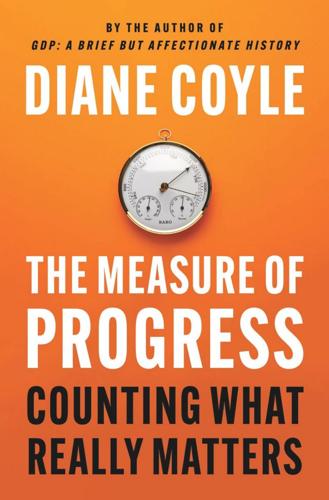
The Measure of Progress: Counting What Really Matters
by
Diane Coyle
Published 15 Apr 2025
Sundararajan, A. (2016). The sharing economy: The end of employment and the rise of crowd-based capitalism. The MIT Press. Tahbaz-Salehi, A., and Carvalho, V. M. (2019). Production networks: A primer. Annual Review of Economics, 11, 635–663. Tambe, P., Hitt, L., Rock, D., and Brynjolfsson, E. (2020). Digital capital and superstar firms (NBER Working Paper 28285). National Bureau of Economic Research. https://www.nber .org/papers/w28285 Taylor, C., Mubarak, S., Chant, K., Fisher, R., and Heys, R. (2024). From national accounts to inclusive wealth: A framework to bridge between market and accounting priced capitals.
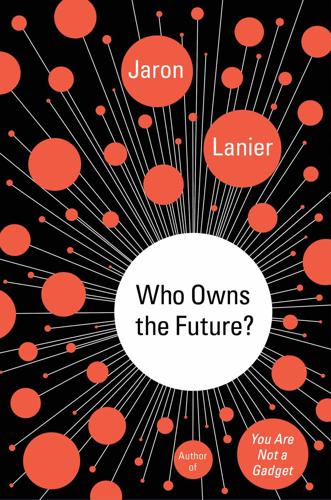
Who Owns the Future?
by
Jaron Lanier
Published 6 May 2013
Taken together, this is evidence that a graph-shaped information economy can support a middle class—as opposed to the winner-take-all outcome that emerges in tree-shaped economies. A monetized version of a many-to-many network could create an organic path to middle-class wealth that would be better than the ad hoc mountain of levees that sustained middle classes in pre-digital capitalism. CHAPTER 21 Some First Principles Provenance The foundational idea of humanistic computing is that provenance is valuable. Information is people in disguise, and people ought to be paid for value they contribute that can be sent or stored on a digital network. The primary distinguishing feature of humanistic computing is therefore two-way linking, just as networking and hypermedia might have possessed anyway, had the original ideas from Ted Nelson and other early pioneers prevailed.
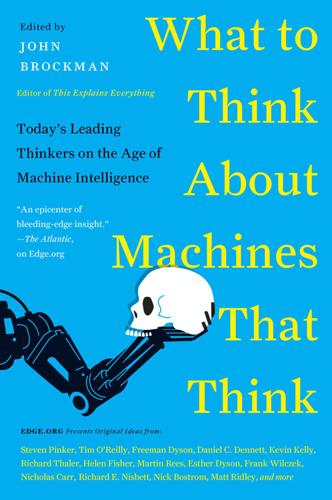
What to Think About Machines That Think: Today's Leading Thinkers on the Age of Machine Intelligence
by
John Brockman
Published 5 Oct 2015
The debate about how to think about thinking machines tends to gravitate toward our cortical and limbic brains. The cortex allows us to more accurately assess the cost/benefit that AI carries, regarding things like the relative costs to business of human versus robot labor and the relative value of human versus digital capital, as well as concerns about bioethics, privacy, and national security. It also enables us to plan, attract more and better funding for research and development, and define our public-policy priorities. In parallel, our limbic brain helps us take precautions and respond with fear or excitement toward the risks or opportunities of developing AI.
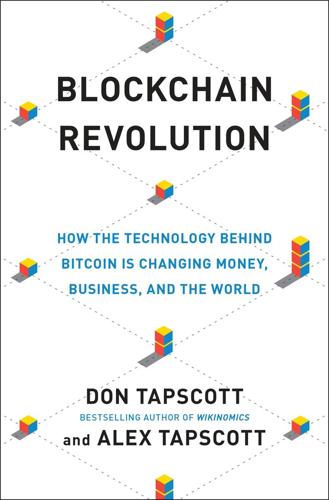
Blockchain Revolution: How the Technology Behind Bitcoin Is Changing Money, Business, and the World
by
Don Tapscott
and
Alex Tapscott
Published 9 May 2016
ALSO BY Don Tapscott Paradigm Shift: The New Promise of Information Technology (1993) Coauthor, Art Caston The Digital Economy: Promise and Peril in the Age of Networked Intelligence (1995) Growing Up Digital: The Rise of the Net Generation (1997) Who Knows: Safeguarding Your Privacy in a Networked World (1997) Coauthor, Ann Cavoukian Digital Capital: Harnessing the Power of Business Webs (2000) Coauthors, David Ticoll and Alex Lowy The Naked Corporation: How the Age of Transparency Will Revolutionize Business (2003) Coauthor, David Ticoll Wikinomics: How Mass Collaboration Changes Everything (2006) Coauthor, Anthony D. Williams Grown Up Digital: How the Net Generation Is Changing the World (2008) Macrowikinomics: New Solutions for a Connected Planet (2010) Coauthor, Anthony D.

Vertical: The City From Satellites to Bunkers
by
Stephen Graham
Published 8 Nov 2016
Both a vast subterranean Cold War bunker system beneath an Alpine mountain in Switzerland and an ex-anti-aircraft artillery installation built off the coast of Essex in England during World War II have recently been redeveloped as ultra-secure data centres.40 Meanwhile, the Strategic Data Services Group in Albuquerque, New Mexico, have taken over two former Atlas intercontinental nuclear missile silos near the city, comprising 1.2 million cubic feet of usable space. These have been converted into twenty-two-floor installations with a hundred servers placed on each floor. They market their services by arguing that deep installations, ‘built to withstand most natural disasters and the perils of mankind’, offer radical security for the backup data of digital capitalism in a world of routine infrastructure collapses, power outages and infrastructural terror attacks.41 Bunker Tourism As the surface environments of many cities become burnished with the identikit accoutrements of stage-managed spectacles, homogenised corporate consumption and gentrified stone-blasted ‘heritage’, so, as part of the wider growth of so-called ‘dark tourism’,42 urban tourists now flock in increasing numbers to subterranean ‘shadow architectures’ of bunkers, tunnels and subterranean spaces packaged as ‘authentic’ tourist sites.43 ‘Bunkers throughout the world have become ready-made tourist attractions since the end of the Cold War’, cultural theorist John Beck writes.

Virtual Competition
by
Ariel Ezrachi
and
Maurice E. Stucke
Published 30 Nov 2016
Carstensen, “The Content of the Hollow Core of Antitrust: The Chicago Board of Trade Case and the Meaning of the ‘Rule of Reason’ in Restraint of Trade Analysis,” Research in Law and Economics 15 (1992): 1, 4. 39. Adam Candeub, “Behavioral Economics, Internet Search, and Antitrust,” MSU Legal Studies Research Paper No. 12-03 (2014), http://ssrn.com/abstract =2414179. 40. Judy Wajcman, Pressed for Time: The Acceleration of Life in Digital Capitalism (Chicago: University of Chicago Press, 2015); see also Hartmut Rosa, Social Acceleration—A New Theory of Modernity (New York: Columbia University Press, 2013). 7 • Tacit Collusion on Steroids: The Predictable Agent 1. Brooke Group Ltd. v. Brown & Williamson Tobacco Corp., 509 U.S. 209 (1993); R.
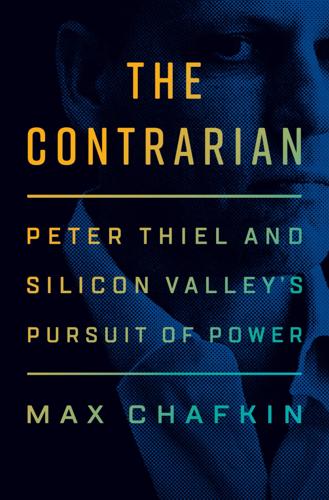
The Contrarian: Peter Thiel and Silicon Valley's Pursuit of Power
by
Max Chafkin
Published 14 Sep 2021
rules against misinformation: Craig Silverman and Ryan Mac, “Facebook Fired an Employee Who Collected Evidence of Right-Wing Pages Getting Preferential Treatment,” BuzzFeed, August 6, 2020, https://www.buzzfeednews.com/article/craigsilverman/facebook-zuckerberg-what-if-trump-disputes-election-results; Ryan Mac and Craig Silverman, “ ‘Mark Changed the Rules’: How Facebook Went East on Alex Jones and Other Right-Wing Figures,” BuzzFeed, February 22, 2021, https://www.buzzfeednews.com/article/ryanmac/mark-zuckerberg-joel-kaplan-facebook-alex-jones; Sarah Frier and Kurt Wagner, “Facebook Needs Trump Even More Than Trump Needs Facebook,” Bloomberg, September 17, 2020, https://www.bloomberg.com/news/features/2020-09-17/facebook-and-mark-zuckerberg-need-trump-even-more-than-trump-needs-facebook?sref=4ZgkJ7cZ CHAPTER TWENTY: BACK TO THE FUTURE handful of well-known favorites: Tim Schneider, “How Artist Simon Denny Is Turning Board Games into Hilarious Critiques of Digital Capitalism,” Artnet, April 2, 2018, https://news.artnet.com/art-world/banksy-guest-stars-sort-of-on-the-latest-episode-of-hbos-silicon-valley-1258157. Thiel’s likeness appeared: Kristen Brown, “Of Course Peter Thiel Is a Green-Skinned Villain in This Board Game,” Gizmodo, January 18, 2018, https://gizmodo.com/of-course-peter-thiel-is-a-green-skinned-villain-in-thi-1821514712.
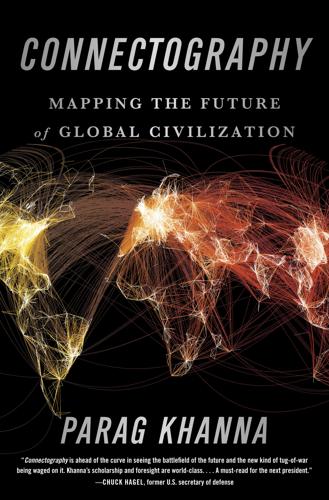
Connectography: Mapping the Future of Global Civilization
by
Parag Khanna
Published 18 Apr 2016
THE DIGITAL IDENTITY BUFFET Science fiction writers who extrapolate from current technology to pre-imagine scientific breakthroughs paint a large arc of human-technology co-evolution in which our present phase of multiplying identities through digital personae graduates to virtual avatars autonomously acting on our behalf in a parallel but integrated cyber universe and eventually a fusion of four-dimensional capabilities with full-sensory haptic experiences allowing us to teleport our minds to distant physical spaces without changing location. Then we arrive at the Matrix. While the “death of distance” has been proclaimed for decades, today’s combination of urbanization and transportation, communication and digitization, capital markets and supply chains, together make a powerful case against geographic determinism. Each infrastructure investment and technological innovation advances our connected destiny. Indeed, the Internet is not merely a conduit for simple signals but the repository of complex data. It is becoming, as many scientists have analogized, something of a “global brain.”

WTF?: What's the Future and Why It's Up to Us
by
Tim O'Reilly
Published 9 Oct 2017
Might this principle even reverse the logic of labor globalization? In a recent paper, economists Laura Tyson and Michael Spence point out that for the last several decades, the logic of globalization was that manufacturing moved toward the lowest-cost sources of labor. But now, they note, as “digital-capital-intensive technologies are substituting for humans in the routine labor-intensive parts of manufacturing supply chains . . . and digital technologies make manufacturing mobile with little or no cost penalty, physical manufacturing activity will move toward market demand rather than toward labor, because there are efficiencies to be gained from proximity to the market.”
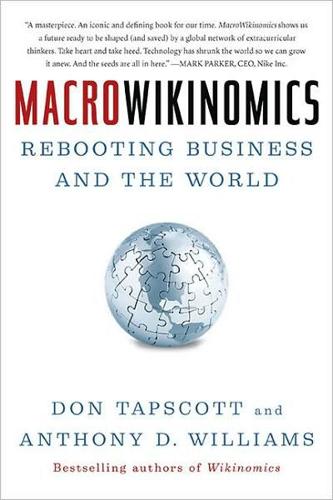
MacroWikinomics: Rebooting Business and the World
by
Don Tapscott
and
Anthony D. Williams
Published 28 Sep 2010
MACROWIKINOMICS ALSO FROM DON TAPSCOTT AND ANTHONY D. WILLIAMS Wikinomics: How Mass Collaboration Changes Everything OTHER BOOKS BY DON TAPSCOTT Grown Up Digital: How the Net Generation is Changing Your World Naked Corporation: How the Age of Transparency Will Revolutionize Business (with David Ticoll) Digital Capital: Harnessing the Power of Business Webs (with David Ticoll and Alex Lowy) Creating Value in the Network Economy Blueprint to the Digital Economy: Creating Wealth in the Era of E-Business (with David Ticoll and Alex Lowy) Growing Up Digital: The Rise of the Net Generation Who Knows: Safeguarding Your Privacy in a Networked World (with Ann Cavoukian) The Digital Economy: Promise and Peril in the Age of Networked Intelligence Paradigm Shift: The New Promise of Information Technology (with Art Caston) Planning for Integrated Office Systems: A Strategic Approach (with Del Henderson and Morley Greenberg) Office Automation: A User-Driven Method (with Del Henderson and Morley Greenberg) MACROWIKINOMICS Rebooting Business and the World Don Tapscott and Anthony D.

Rentier Capitalism: Who Owns the Economy, and Who Pays for It?
by
Brett Christophers
Published 17 Nov 2020
Economist, ‘The London Stock Exchange Is Thriving Despite Brexit’, 9 March 2019. 16. One zettabyte = 1 trillion gigabytes, or 1021 bytes. IDC, ‘The Digital Universe of Opportunities: Rich Data and the Increasing Value of the Internet of Things’, April 2014, at emc.com. 17. Lanchester, ‘You Are the Product’. On the surveillance business of contemporary digital capitalism more broadly, see S. Zuboff, The Age of Surveillance Capitalism (London: Profile, 2019). 18. ‘Datafication’ is the term used by Jathan Sadowski in his ‘When Data Is Capital: Datafication, Accumulation, and Extraction’, Big Data & Society, doi: 10.1177/2053951718820549. 19. Economist, ‘Data Is Giving Rise to a New Economy’, 6 May 2017. 20.

Nexus: A Brief History of Information Networks From the Stone Age to AI
by
Yuval Noah Harari
Published 9 Sep 2024
Sijbren Cnossen and Bas Jacobs (New York: Oxford University Press, 2022), 178. 50. Omri Marian, “Taxing Data,” BYU Law Review 47 (2021); Viktor Mayer-Schönberger and Thomas Ramge, Reinventing Capitalism in the Age of Big Data (New York: Basic Books, 2018); Jathan Sadowski, Too Smart: How Digital Capitalism Is Extracting Data, Controlling Our Lives, and Taking Over the World (Cambridge, Mass.: MIT Press, 2020); Douglas Laney, “Unlock Tangible Benefits by Valuing Intangible Data Assets,” Forbes, March 9, 2023, www.forbes.com/sites/douglaslaney/2023/03/09/unlock-tangible-benefits-by-valuing-intangible-data-assets/?

The Rise of the Network Society
by
Manuel Castells
Published 31 Aug 1996
(eds) (1990) Technological Change and Employment Innovation in the German Economy, Berlin: Walter De Gruyter. Schiatarella, R. (1984) Mercato di Lavoro e struttura produttiva, Milan: Franco Angeli. Schiffer, Jonathan (1983) Anatomy of a Laissez-faire Government: the Hong Kong Growth Model Reconsidered, Hong Kong: University of Hong Kong Centre for Asian Studies. Schiller, Dan (1999) Digital Capitalism: Networking in the Global Market System, Cambridge, MA: MIT Press. Schoettle, Enid C.B. and Grant, Kate (1998) Globalisation: A Discussion Paper, New York: The Rockefeller Foundation. Schofield Clark, Nancy (1998) “Dating on the net: teens and the rise of “pure relationships”, in Jones (1998): 159–83.
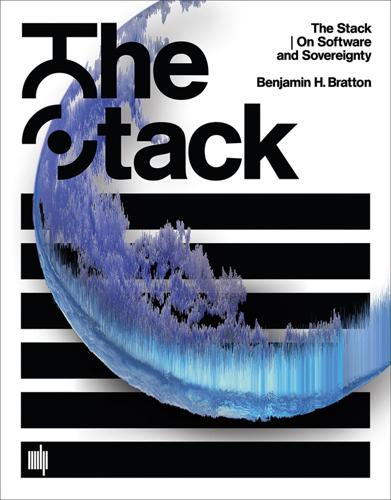
The Stack: On Software and Sovereignty
by
Benjamin H. Bratton
Published 19 Feb 2016
At the same time, perhaps this genre of extrapolative futurism is just another way of saying that mathematics is universal and algorithmic technologies are medium independent, and so we need to employ them differently than we do now (which is true). Or, perhaps, is it but an elegant humming along with the most superficial and poorly theorized aspects of digital capitalism as it dissolves raw materials into interchangeable goods and services, and so the melody is rewarded for flattering the illusion that these linear speculations represent timeless principles? Industrial capitalism had social Darwinism, and today do we have instead a social Turingism: financialization as social metaphysics?